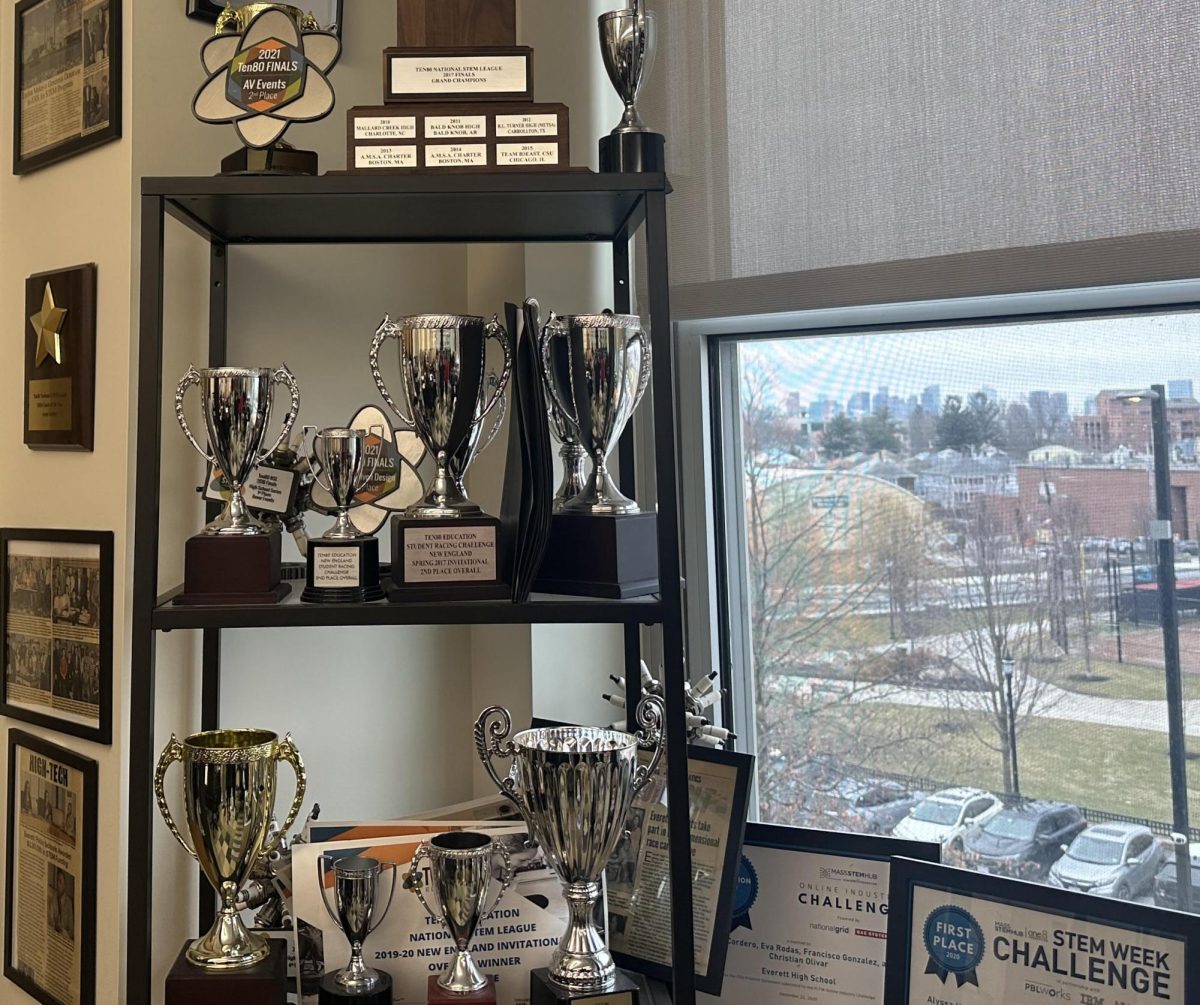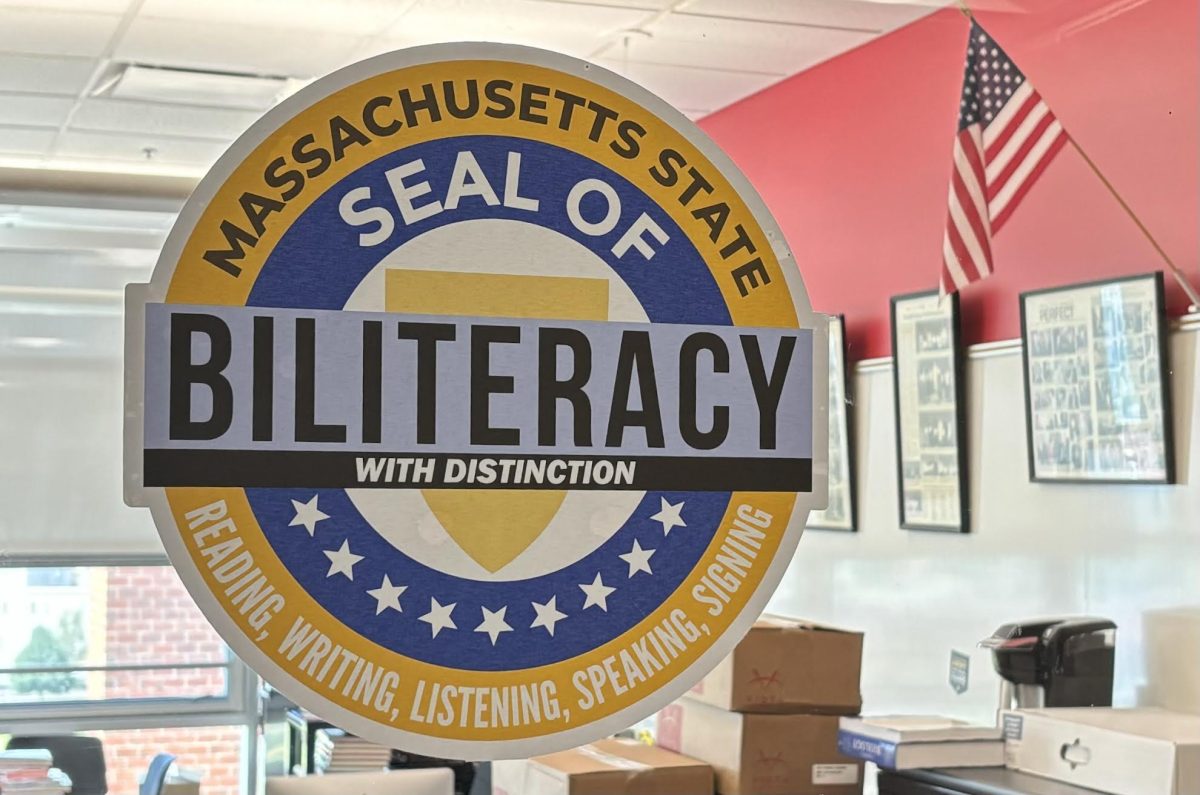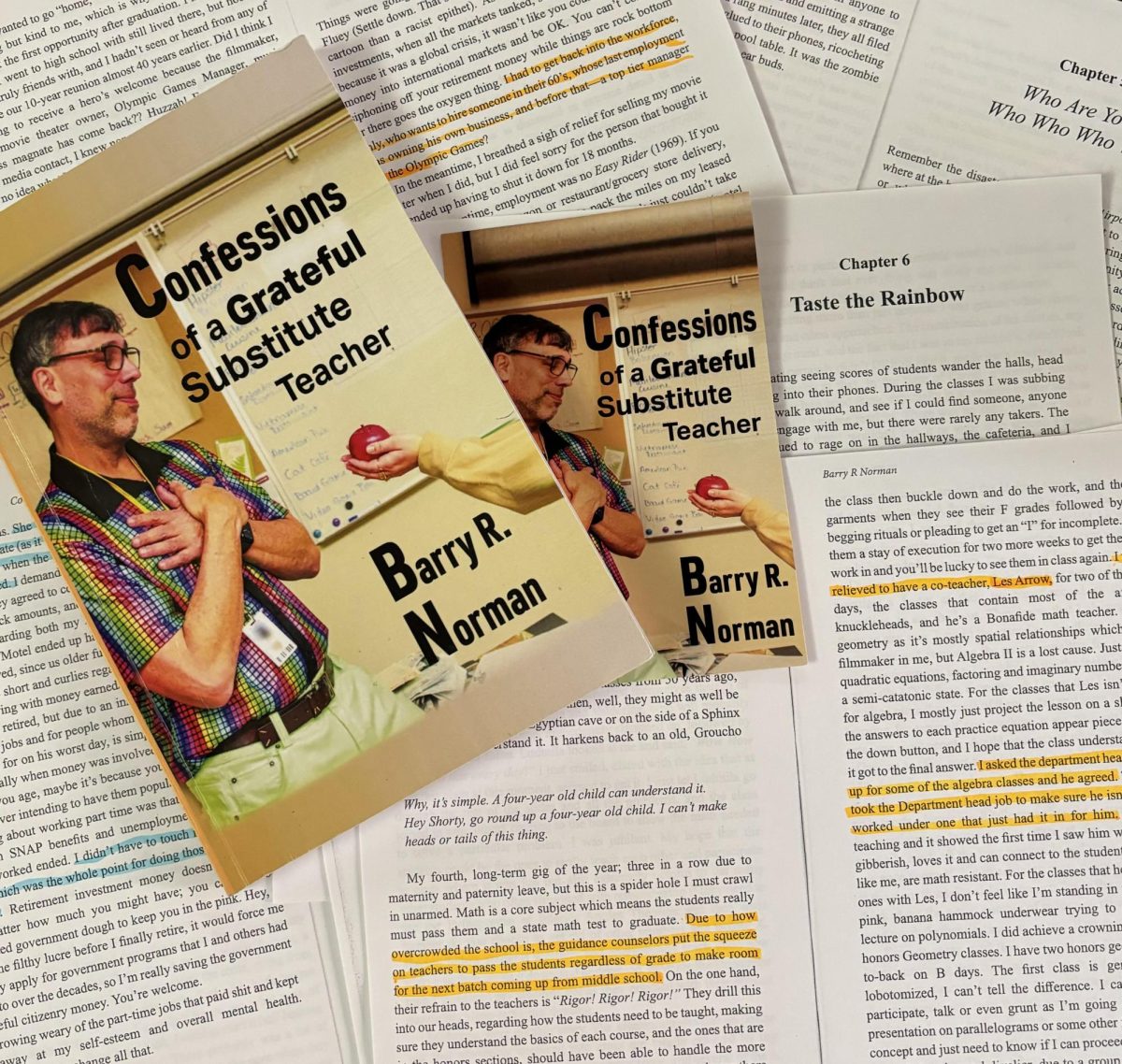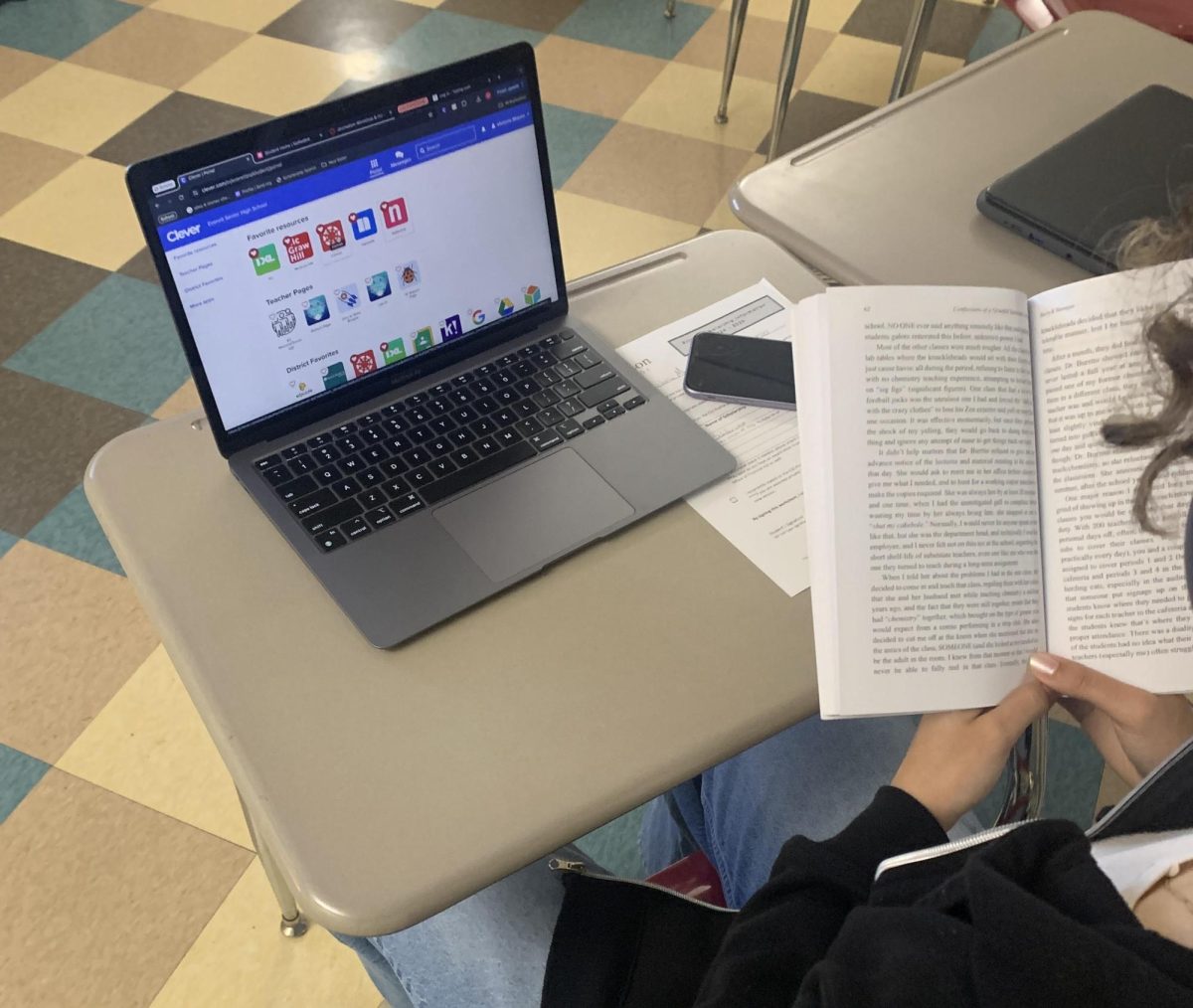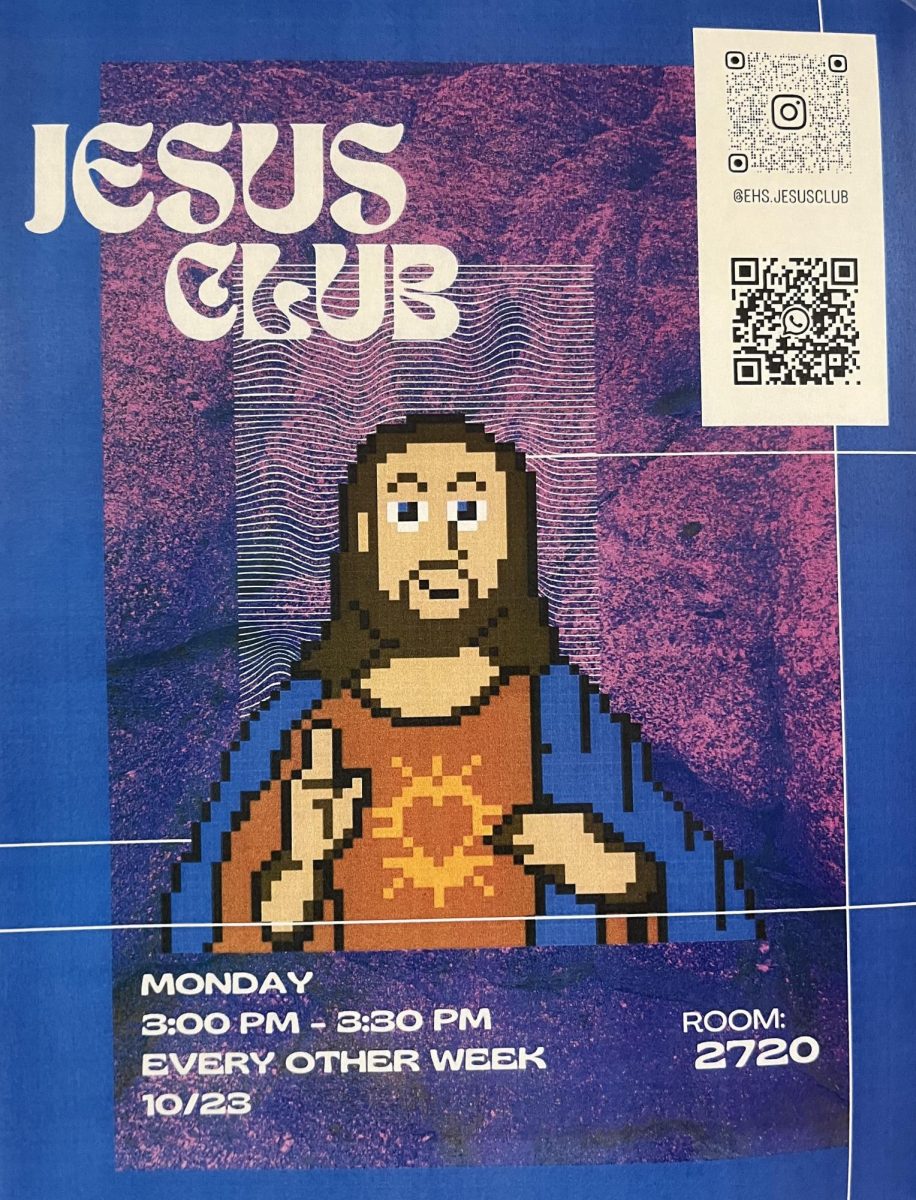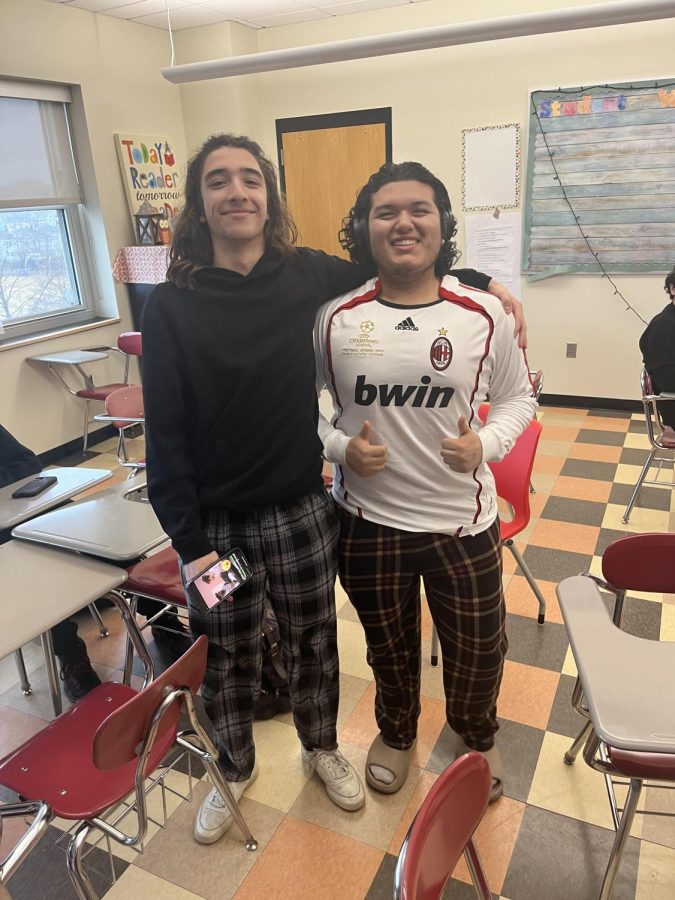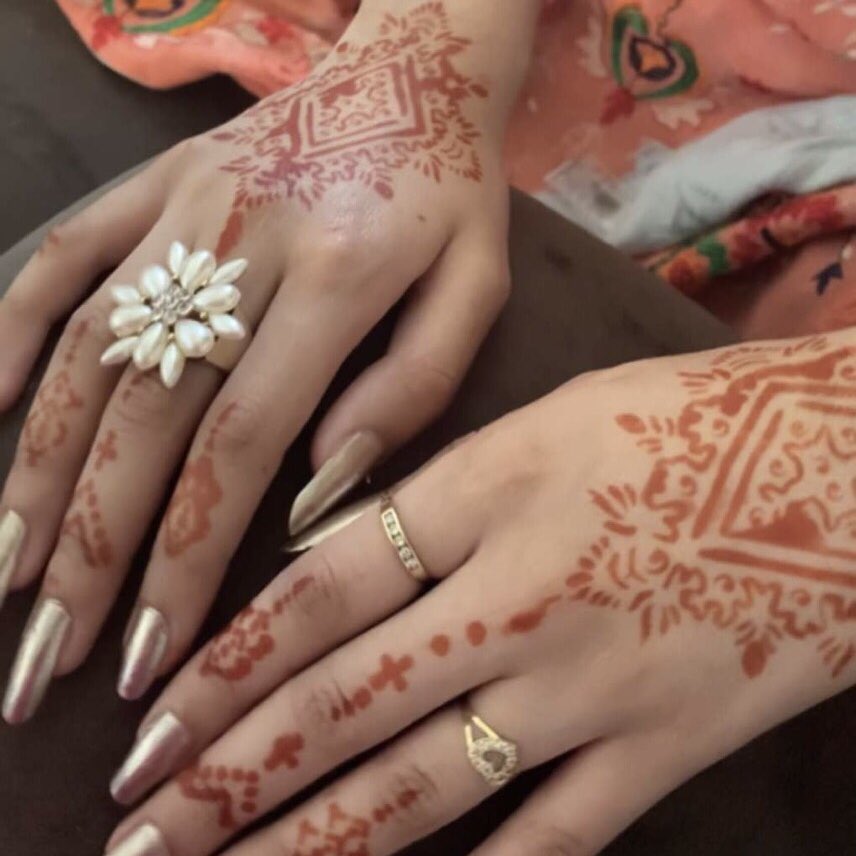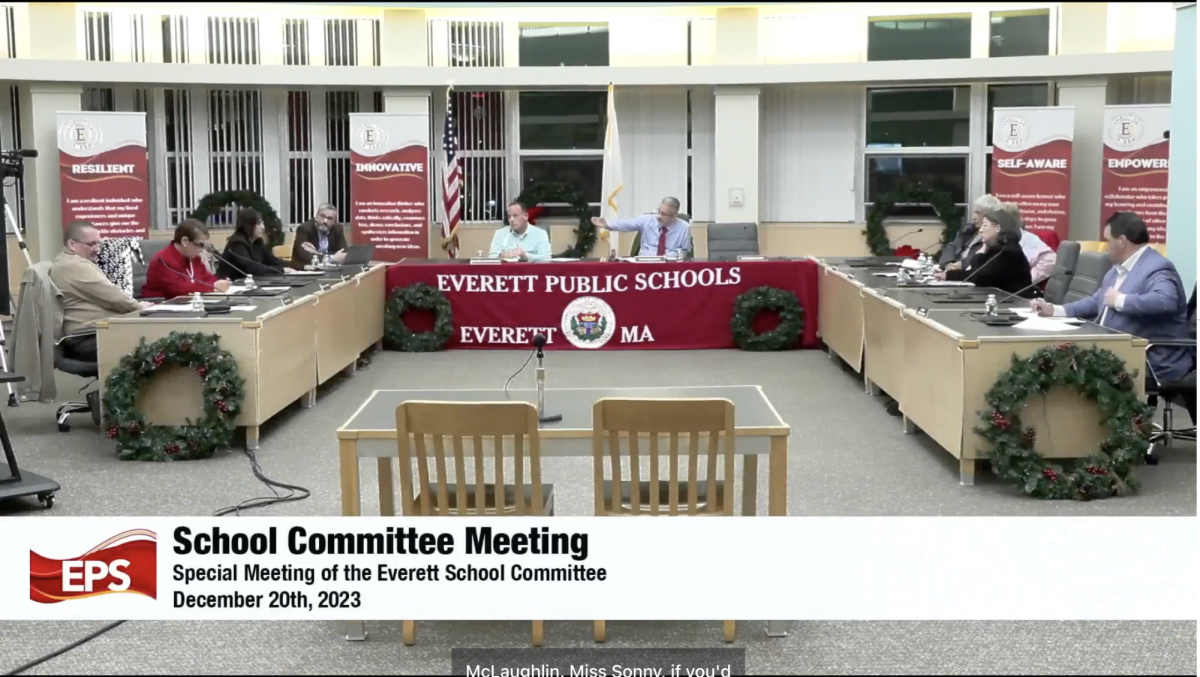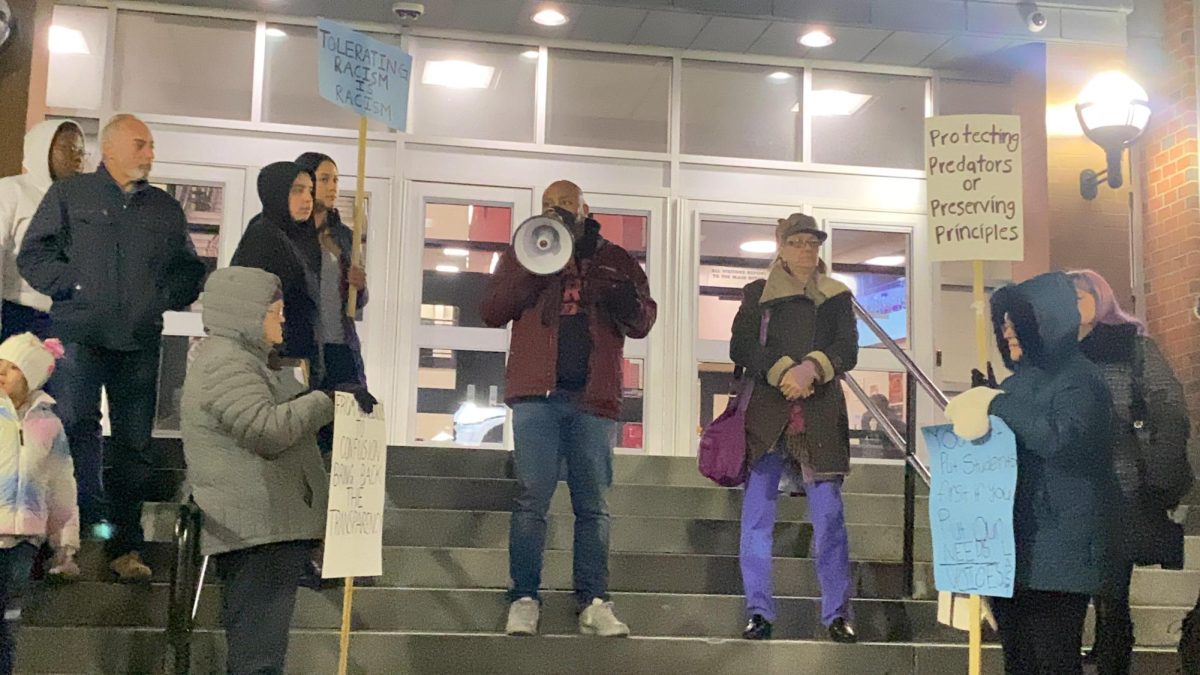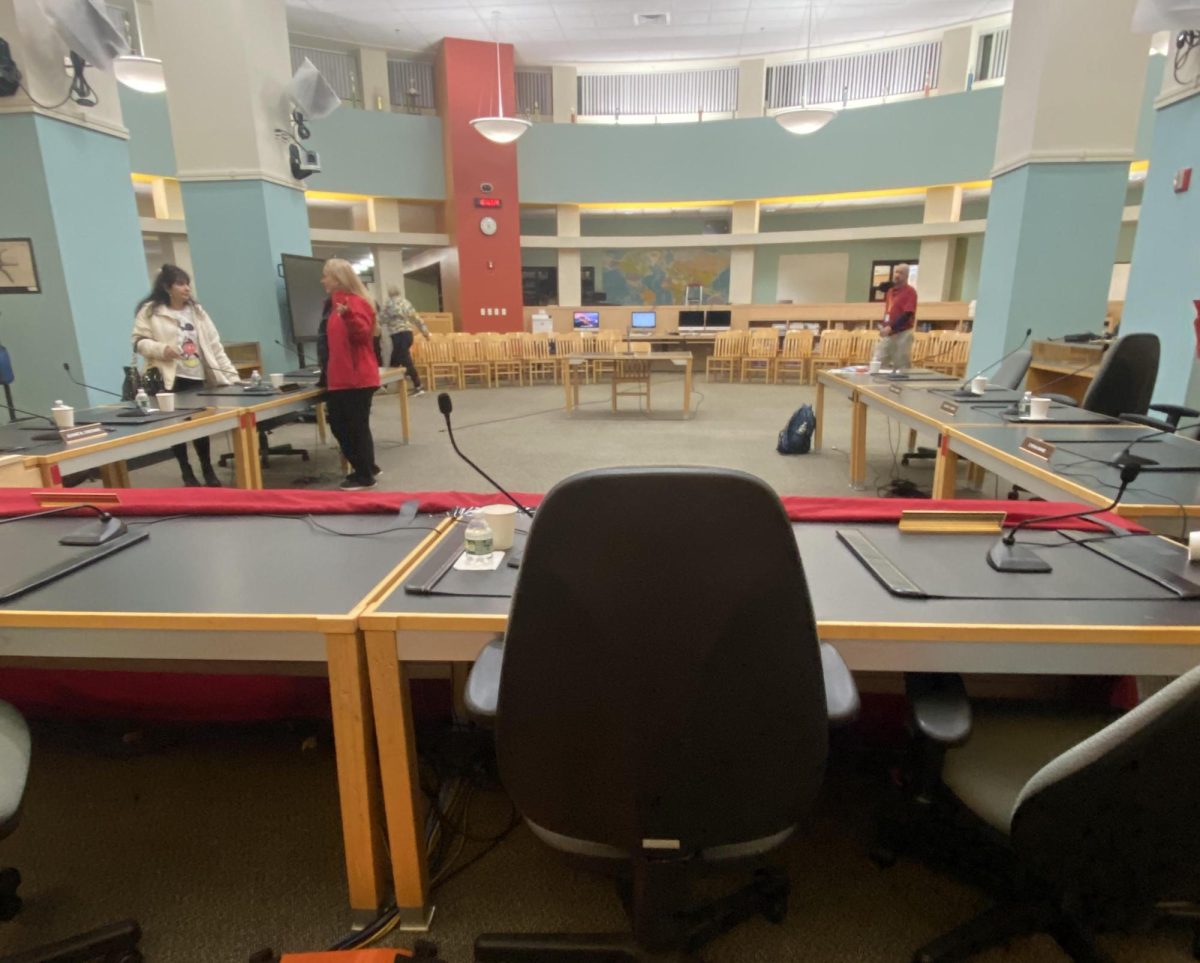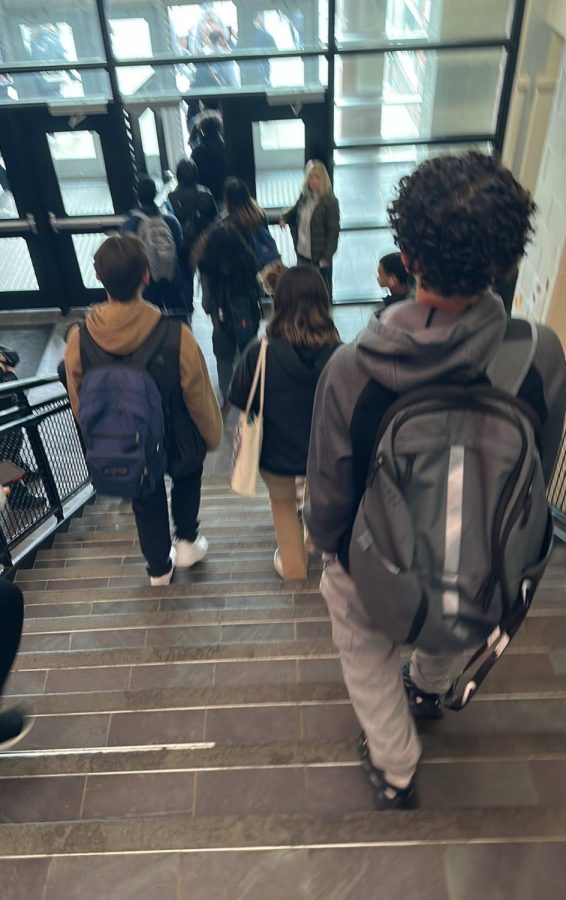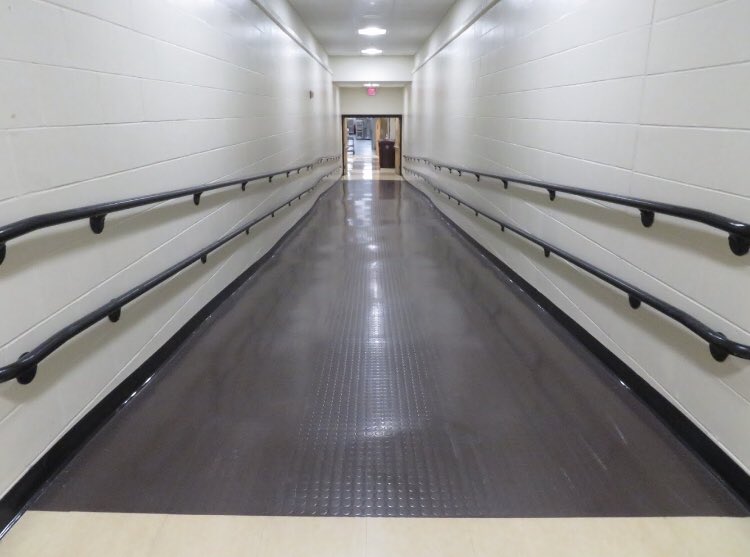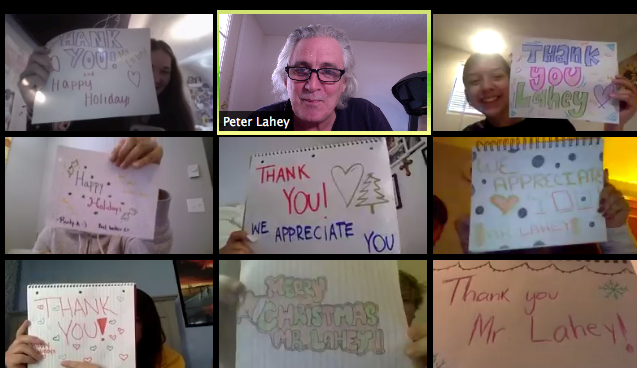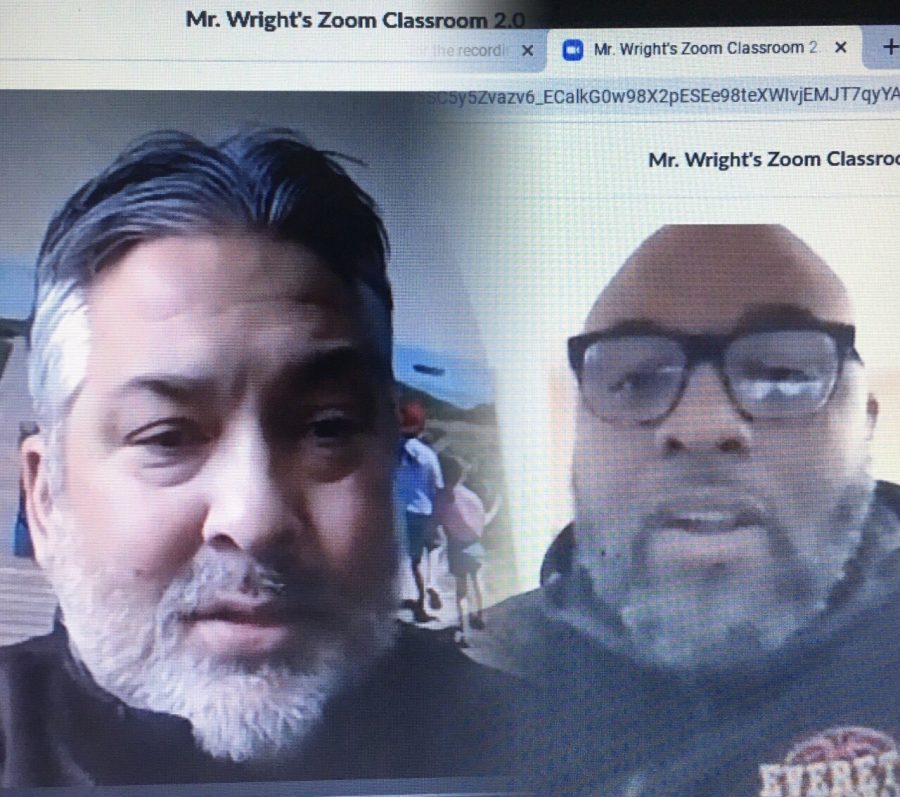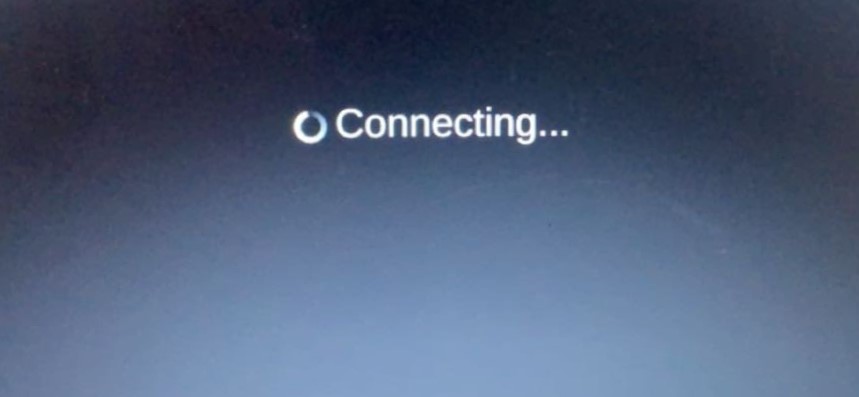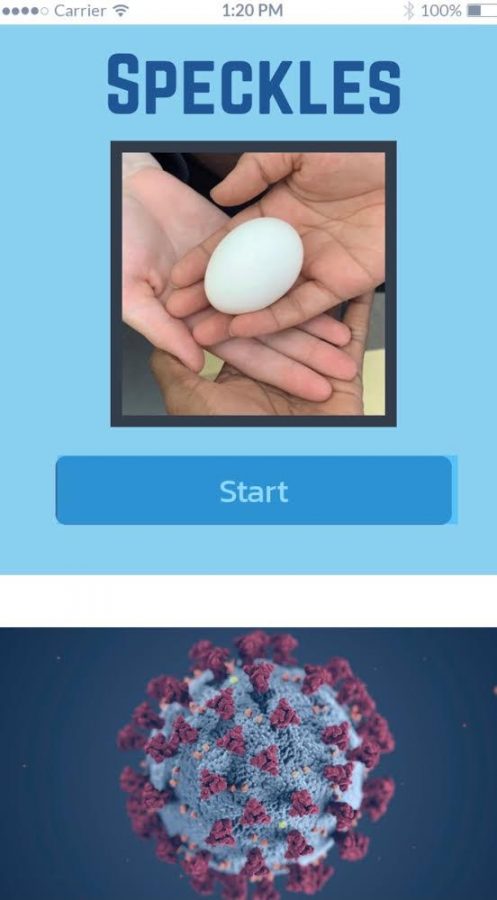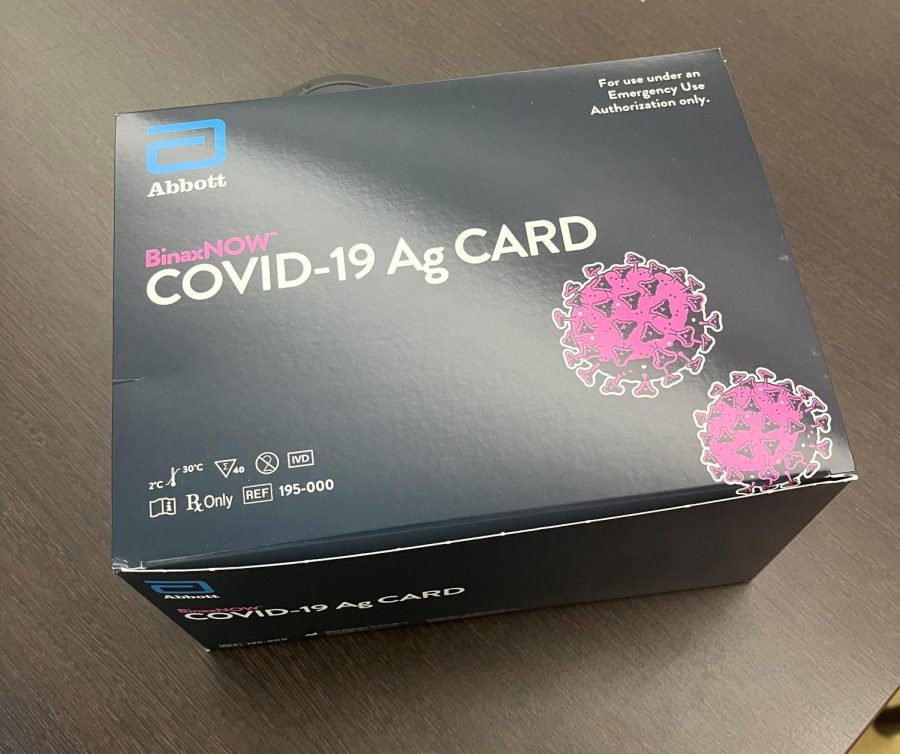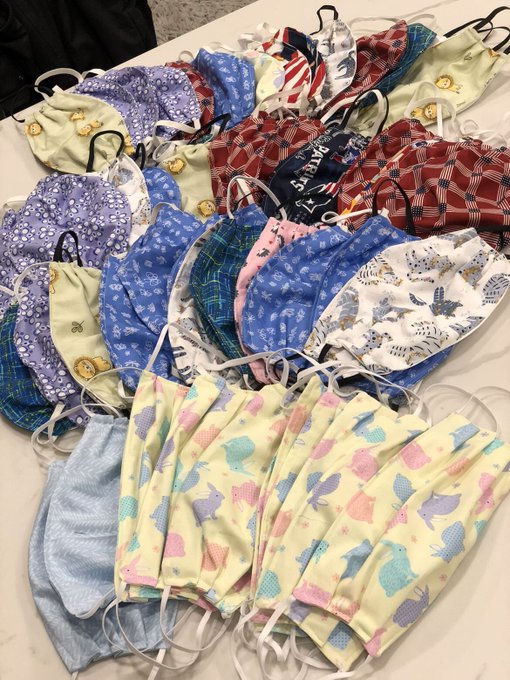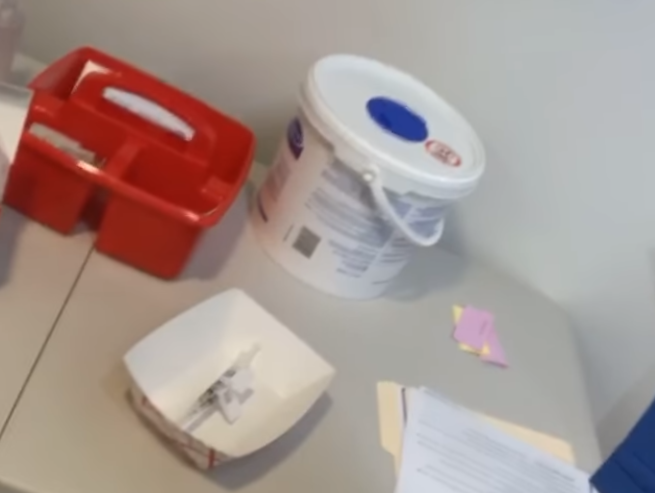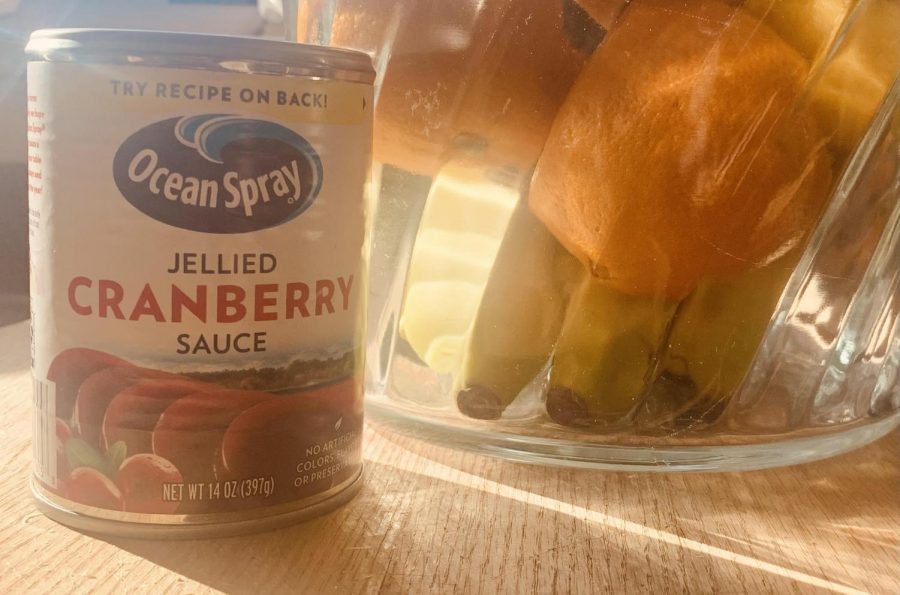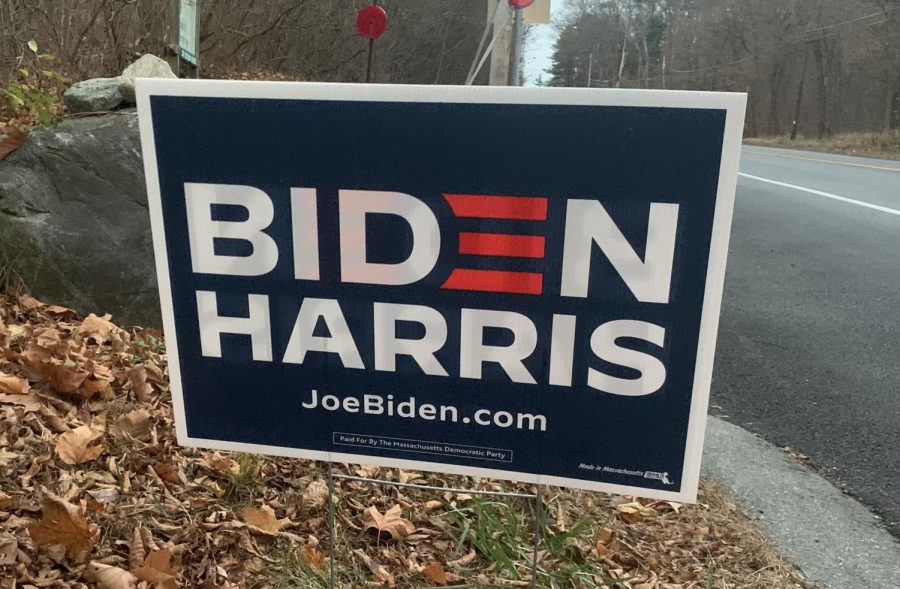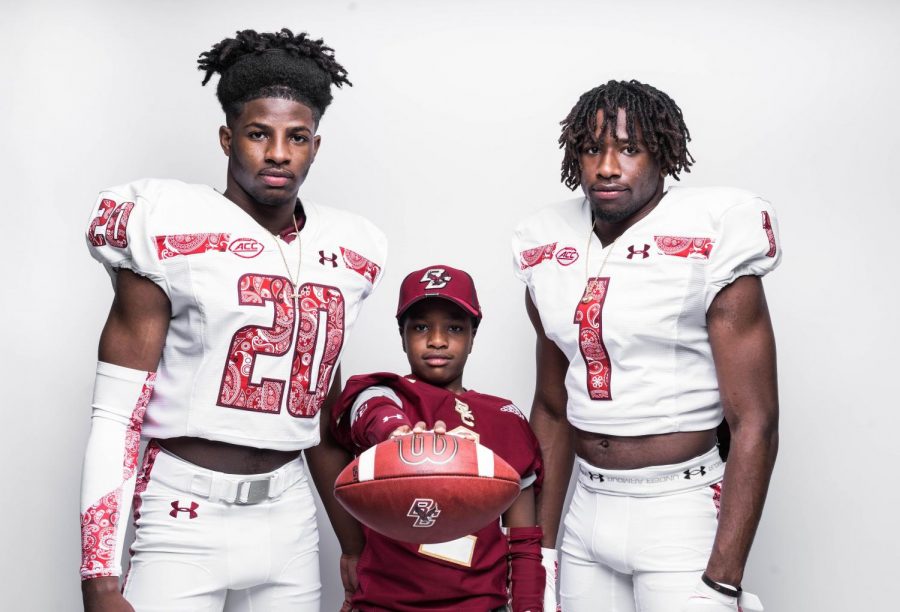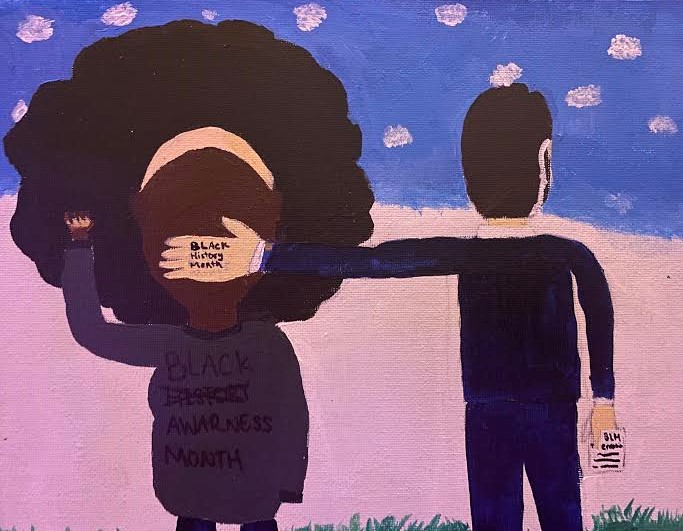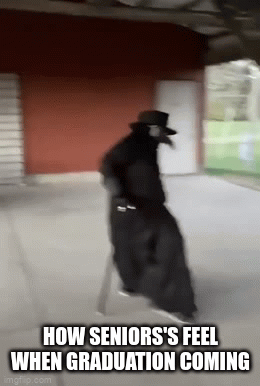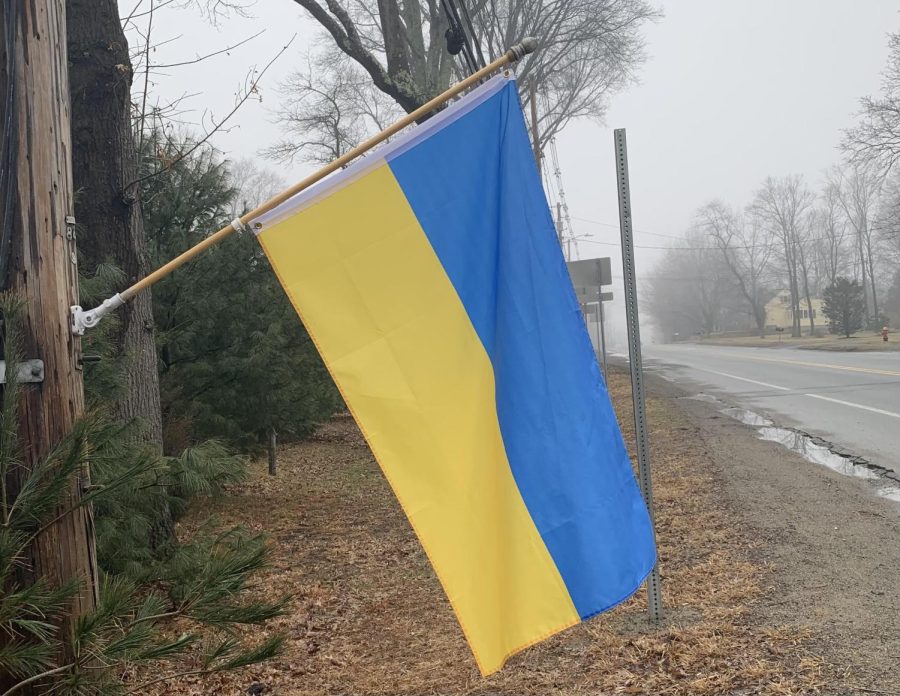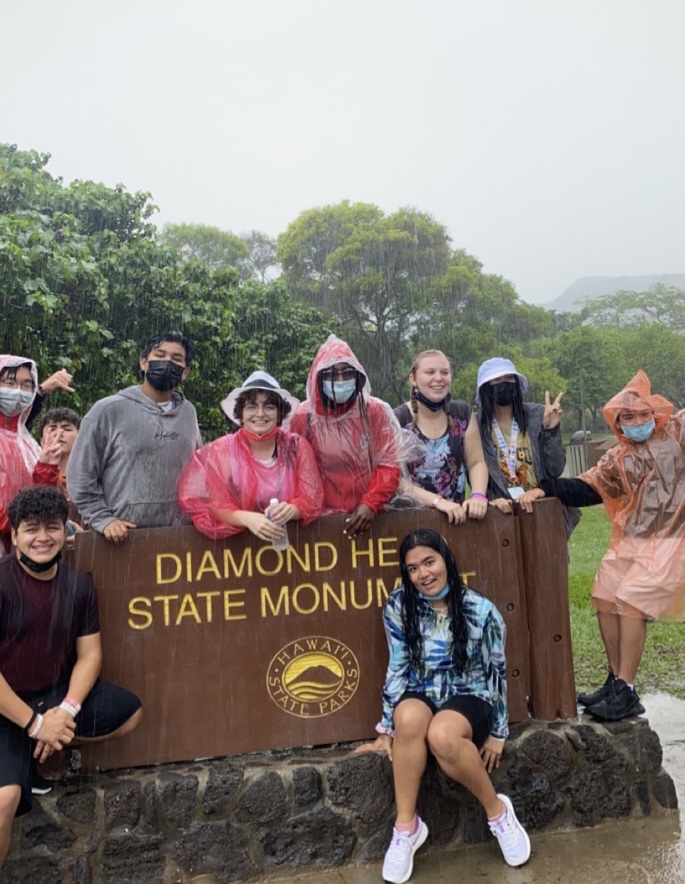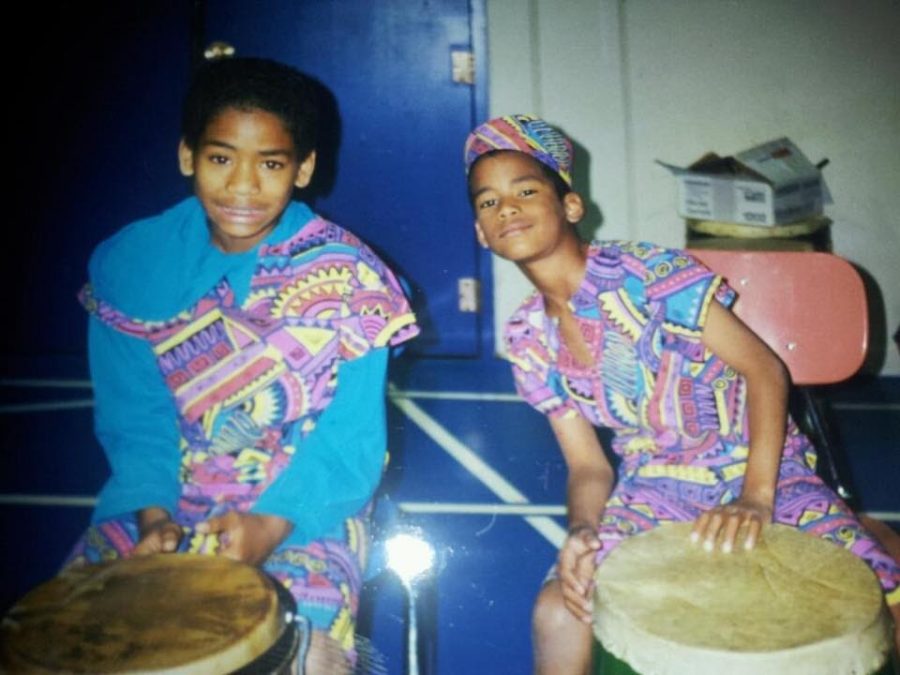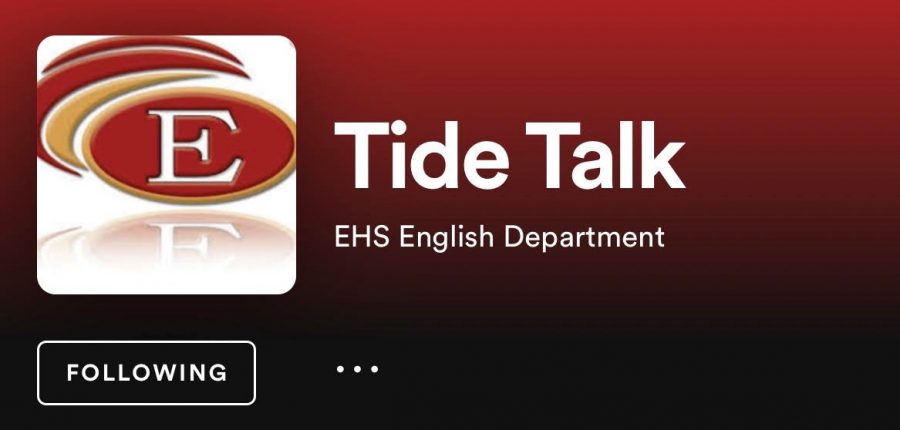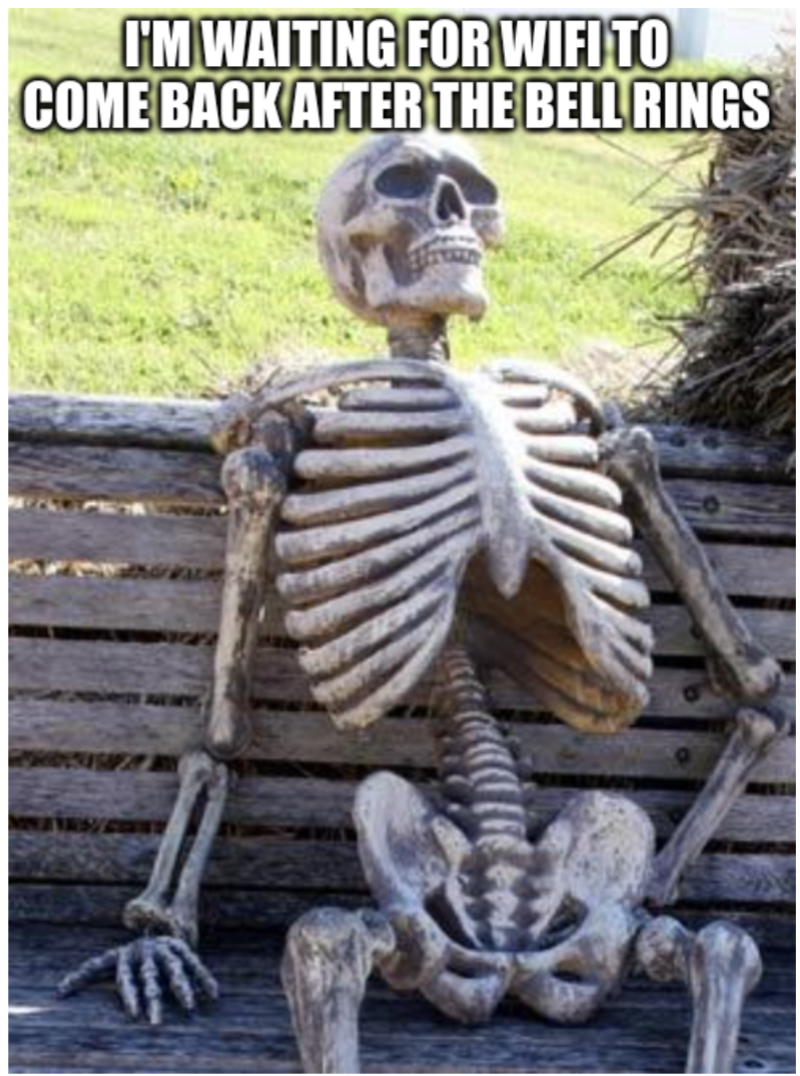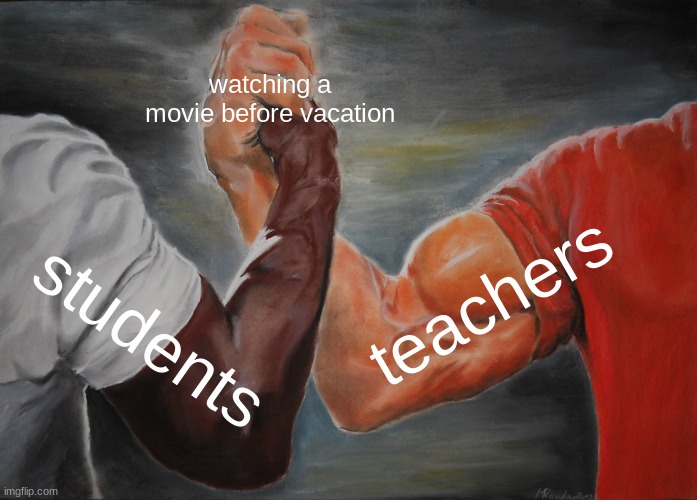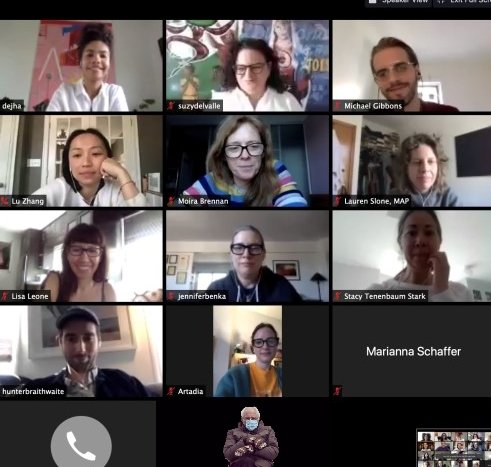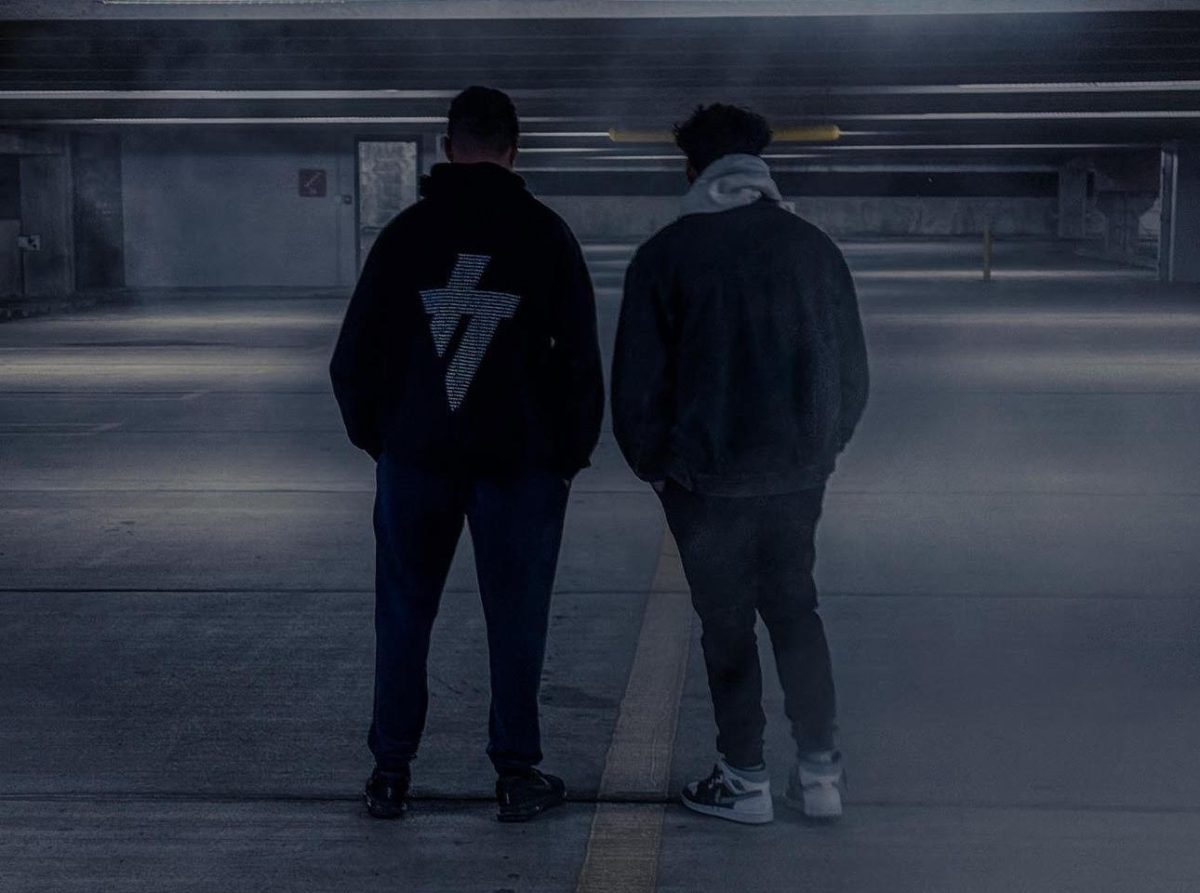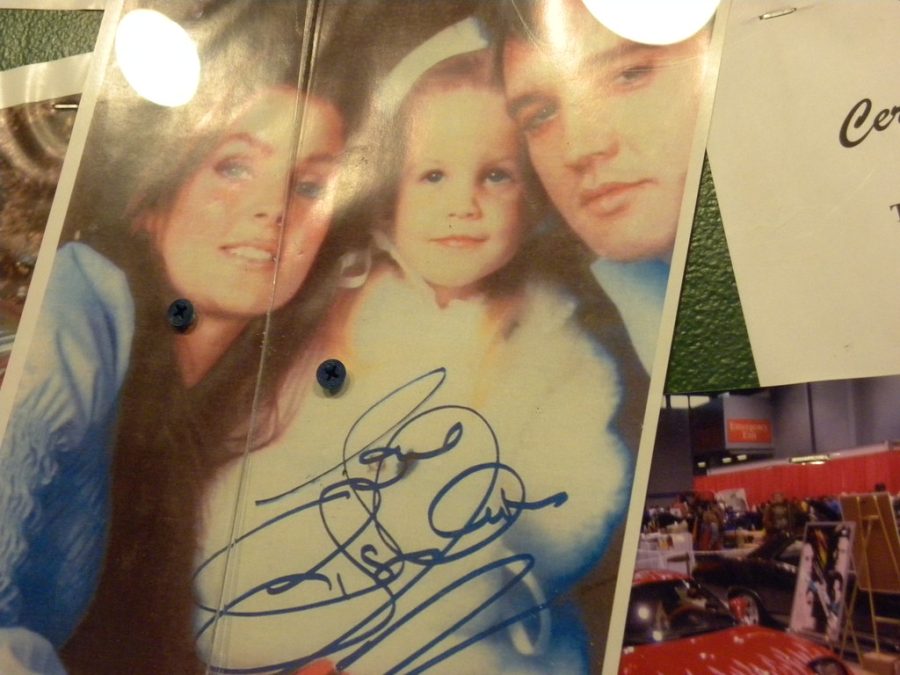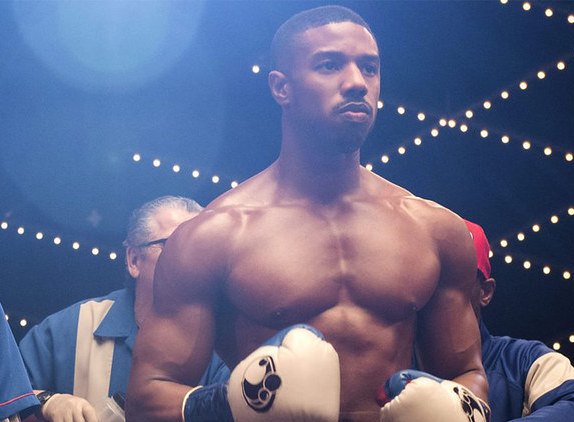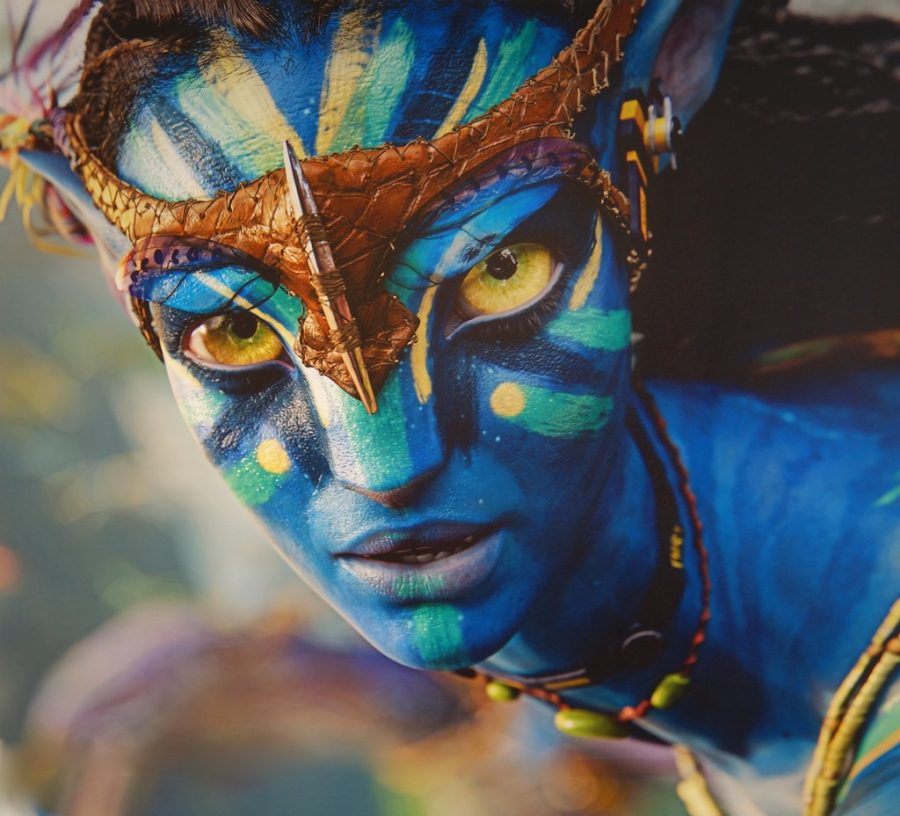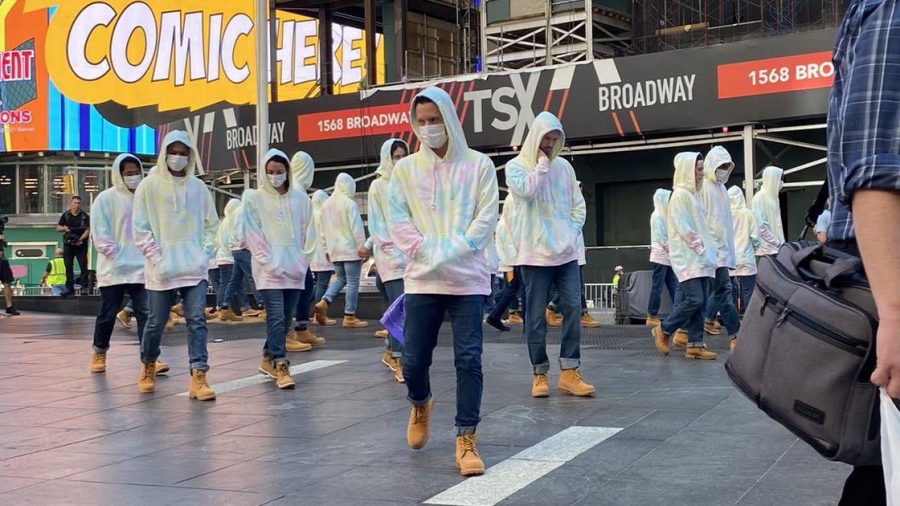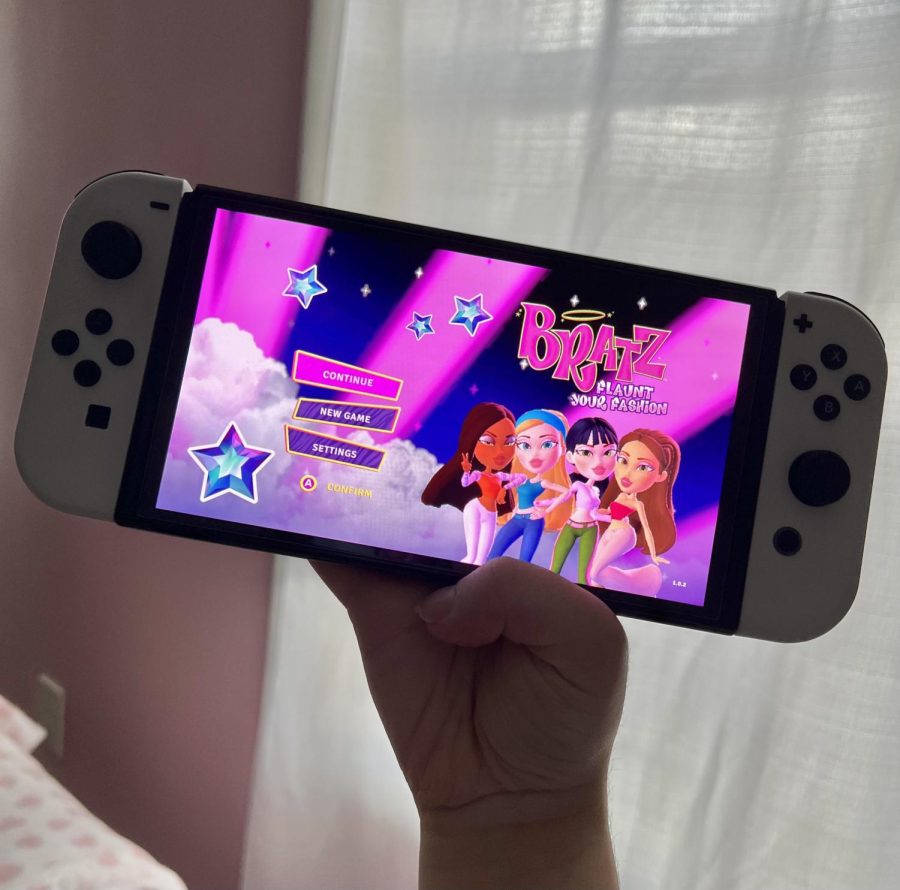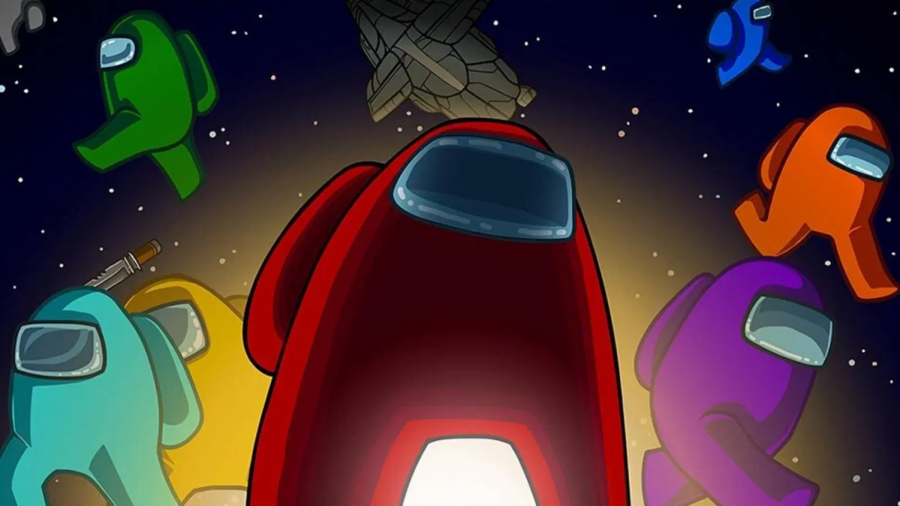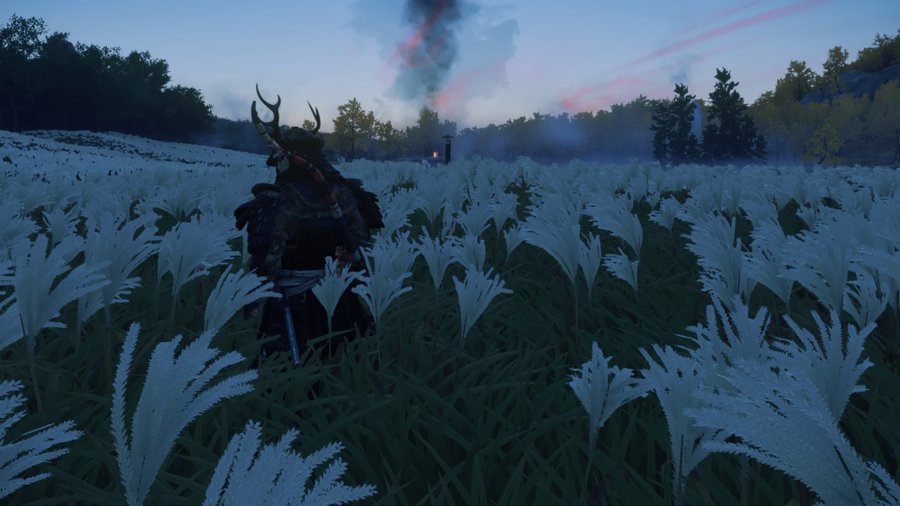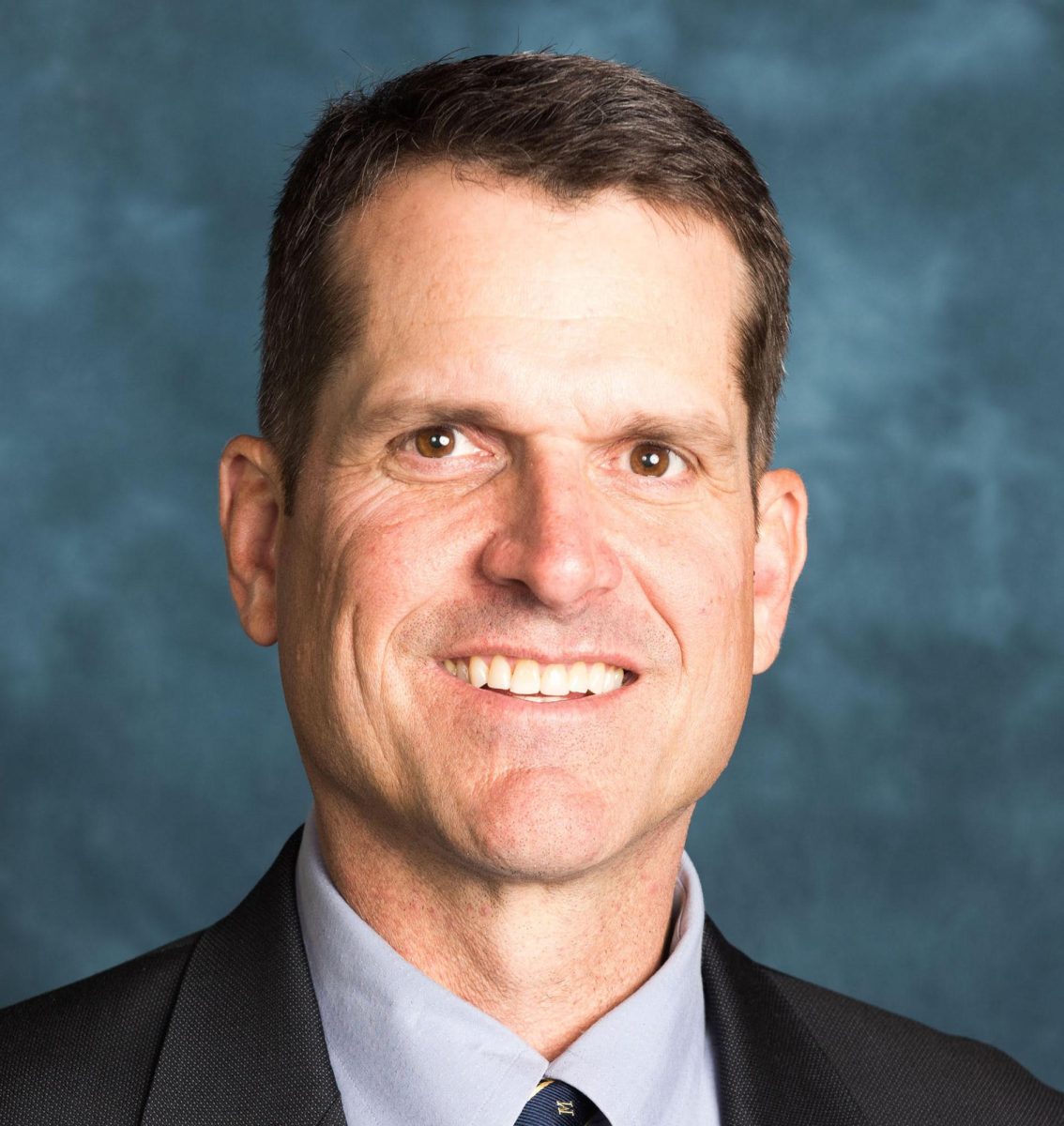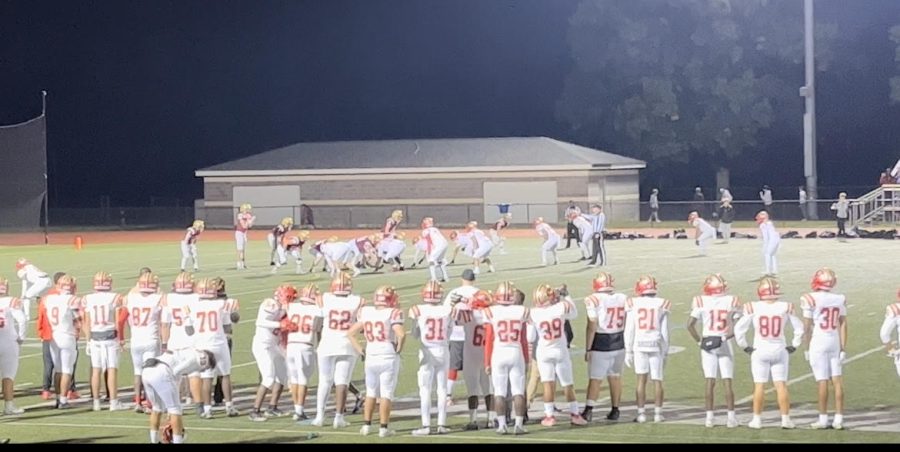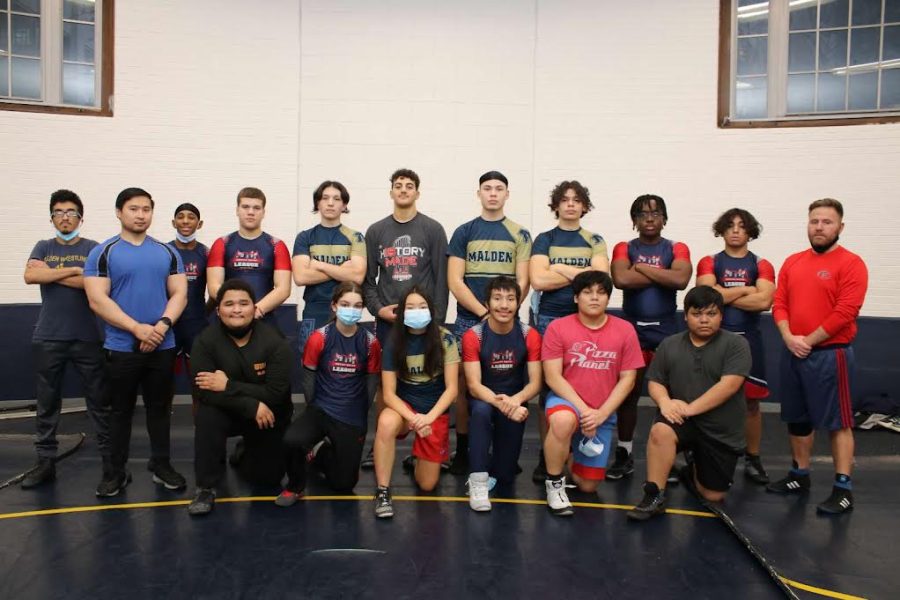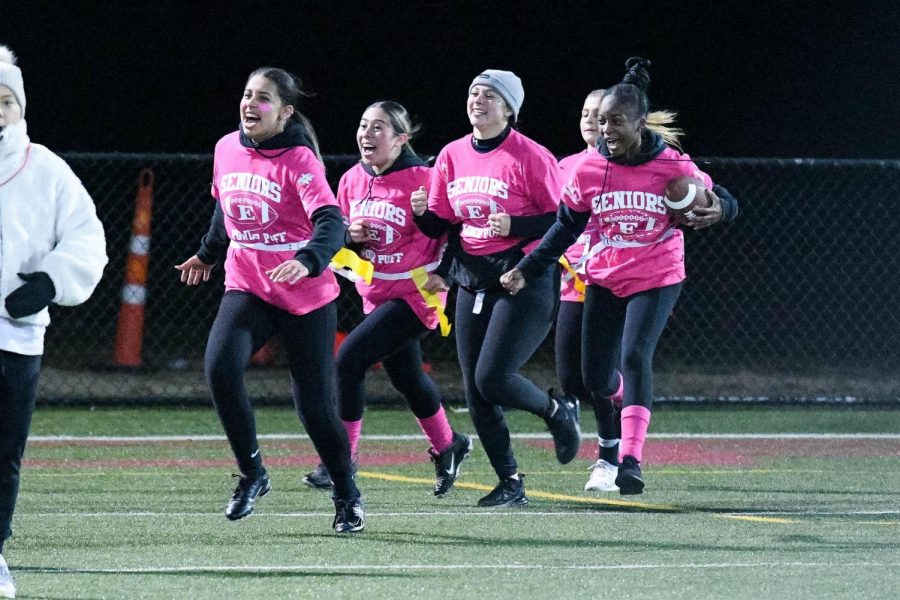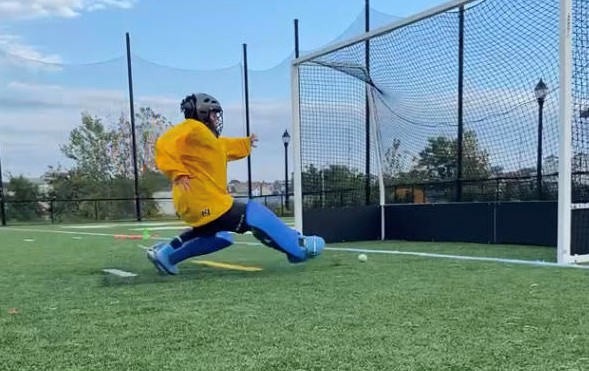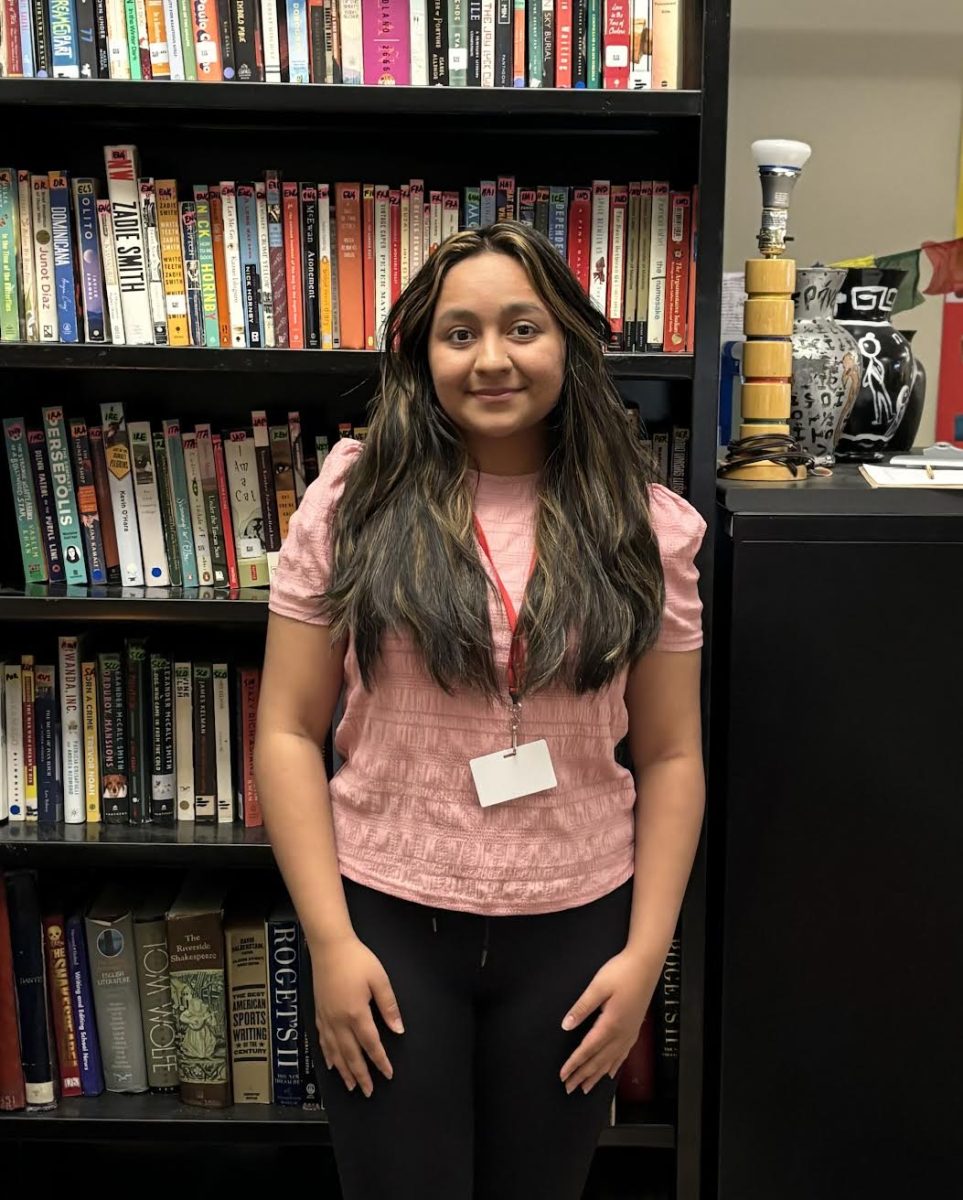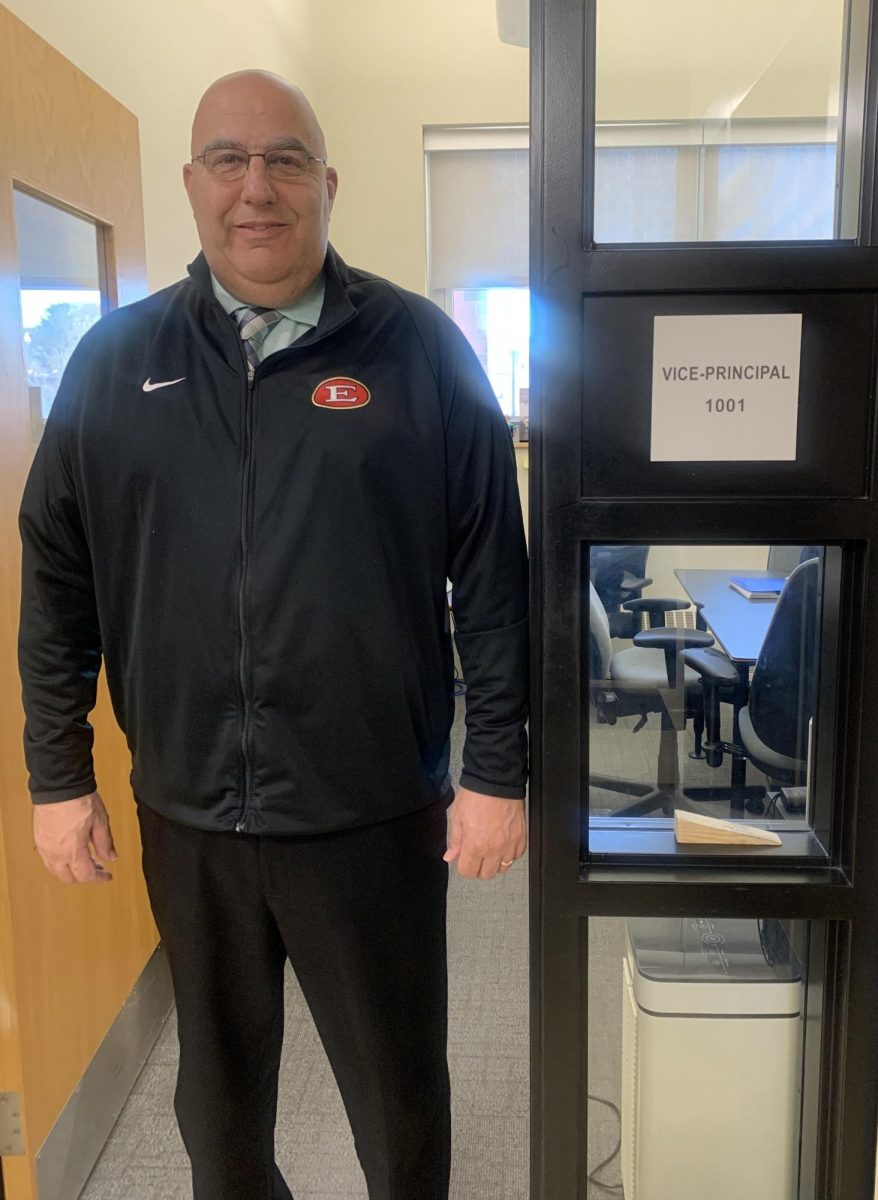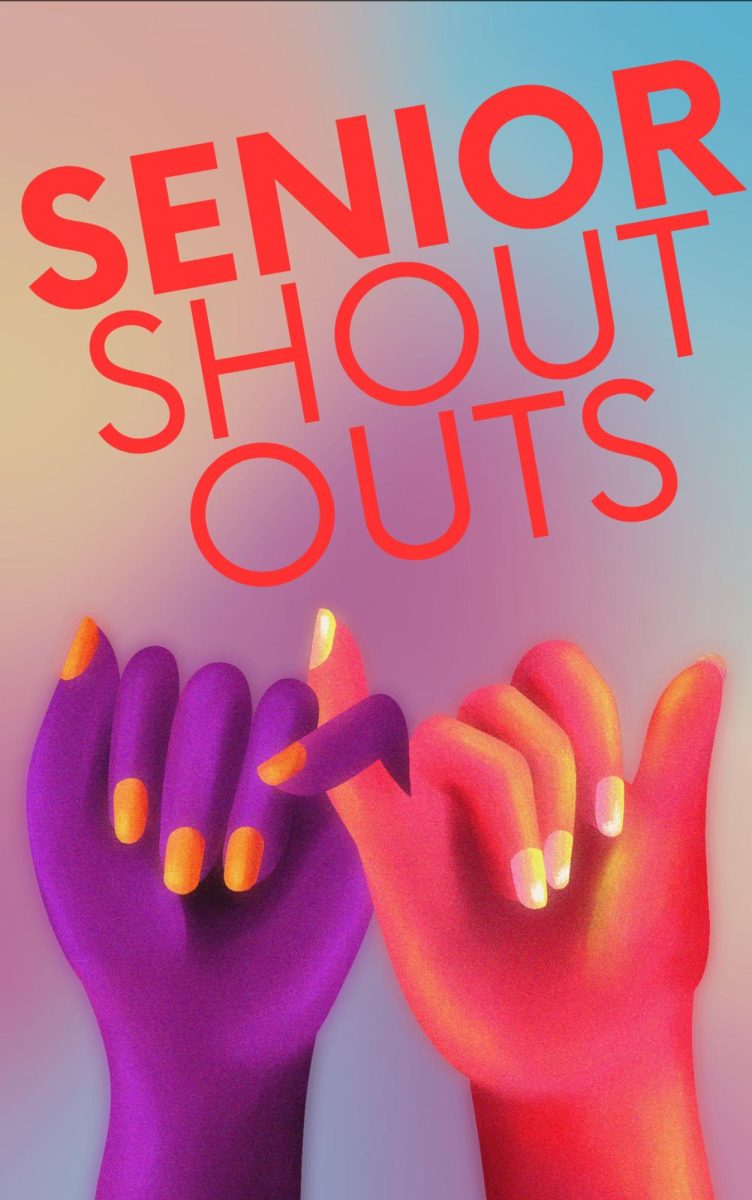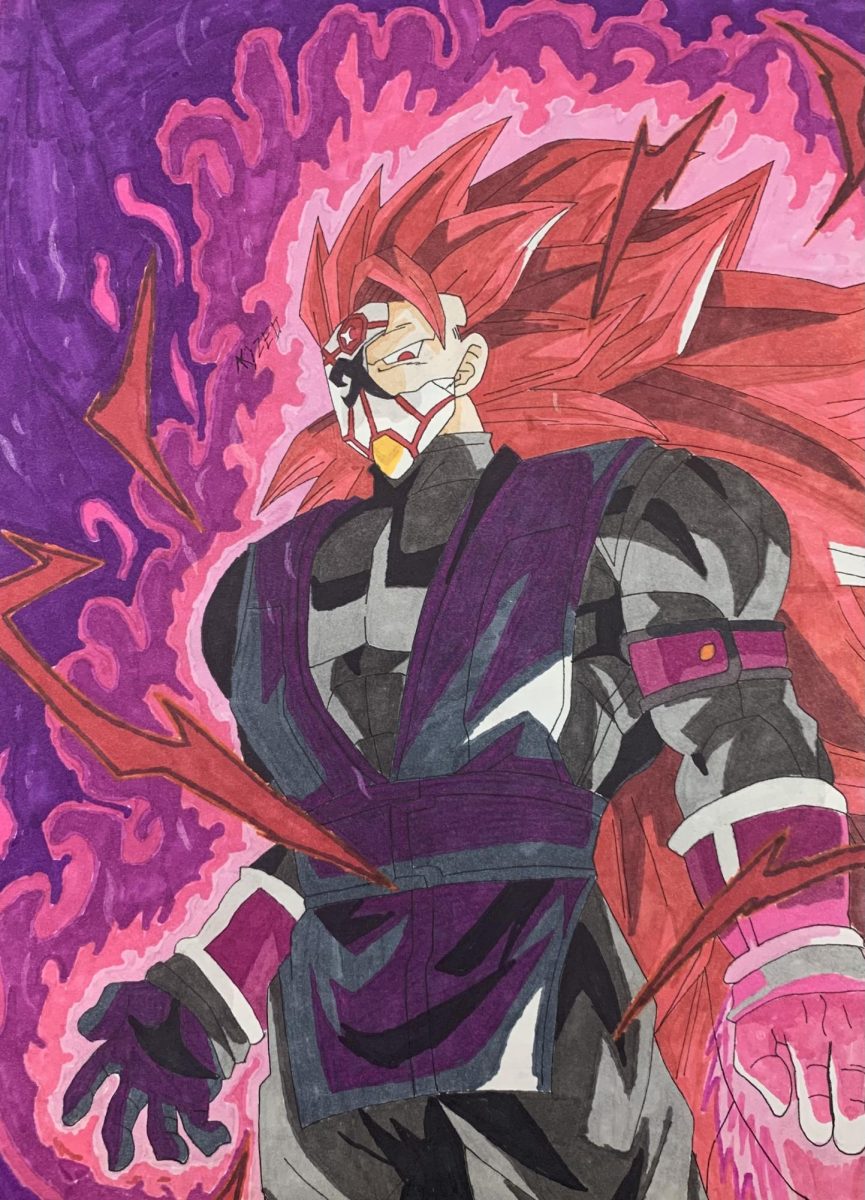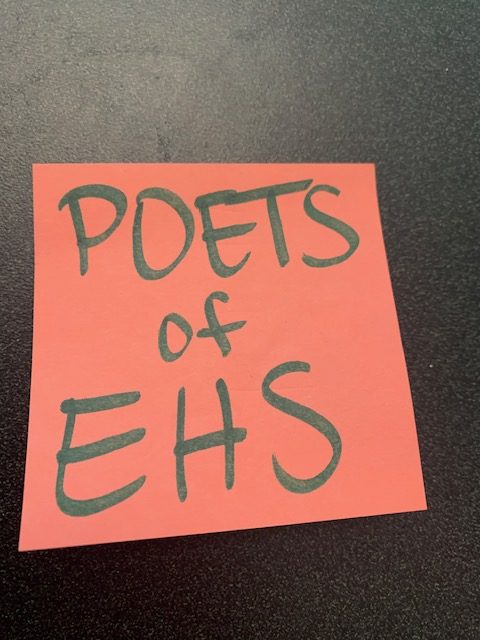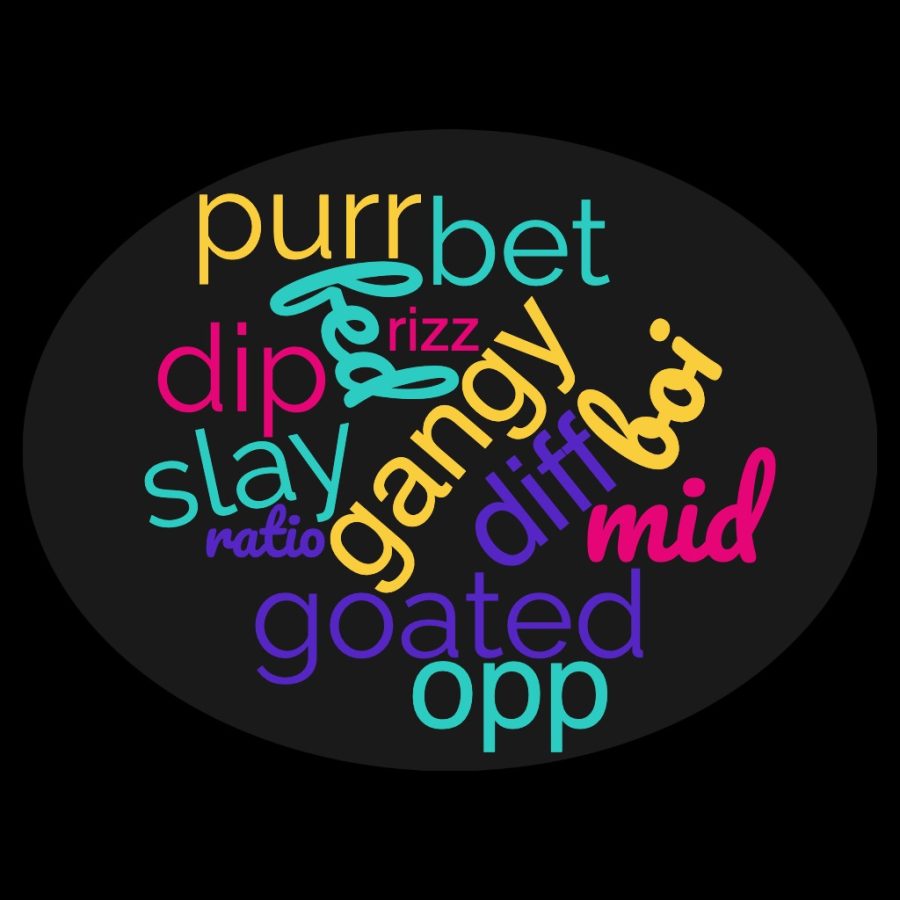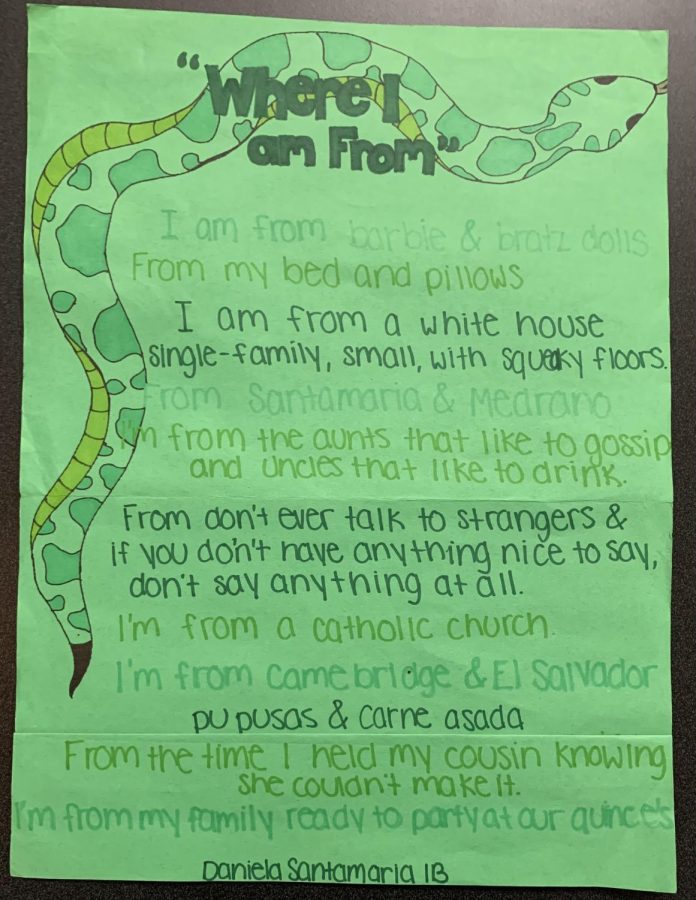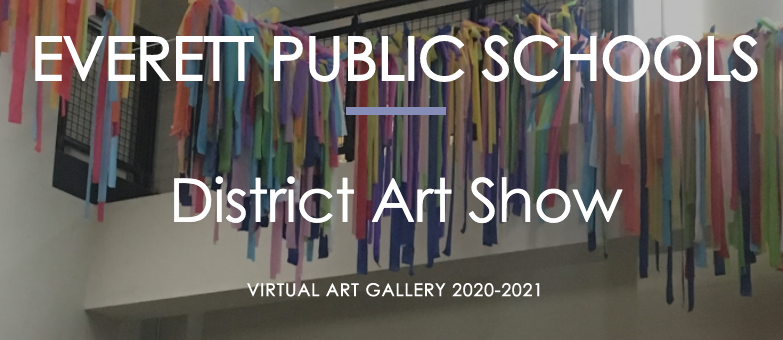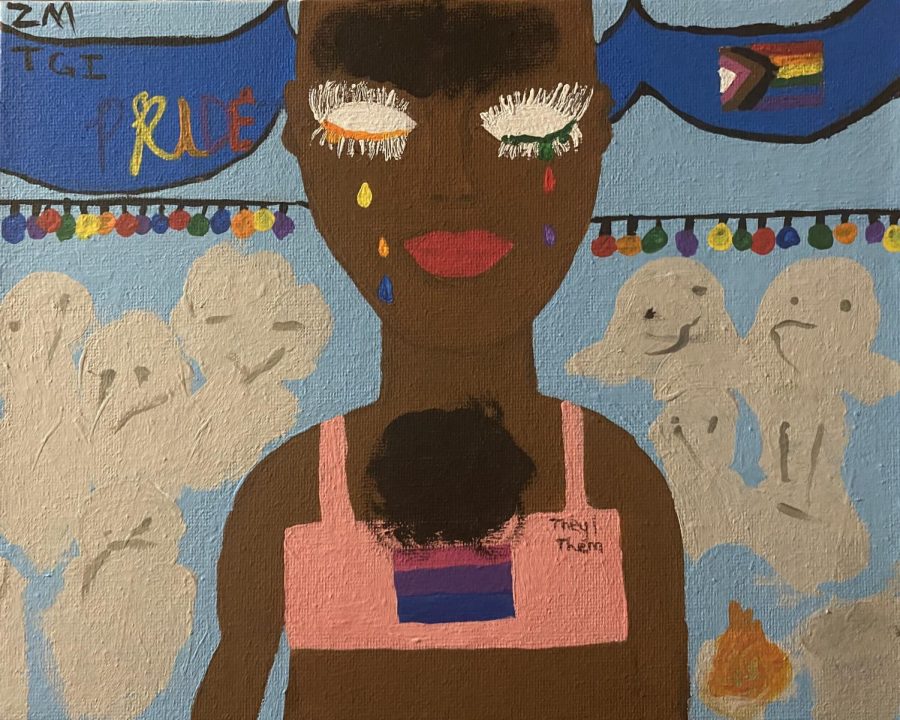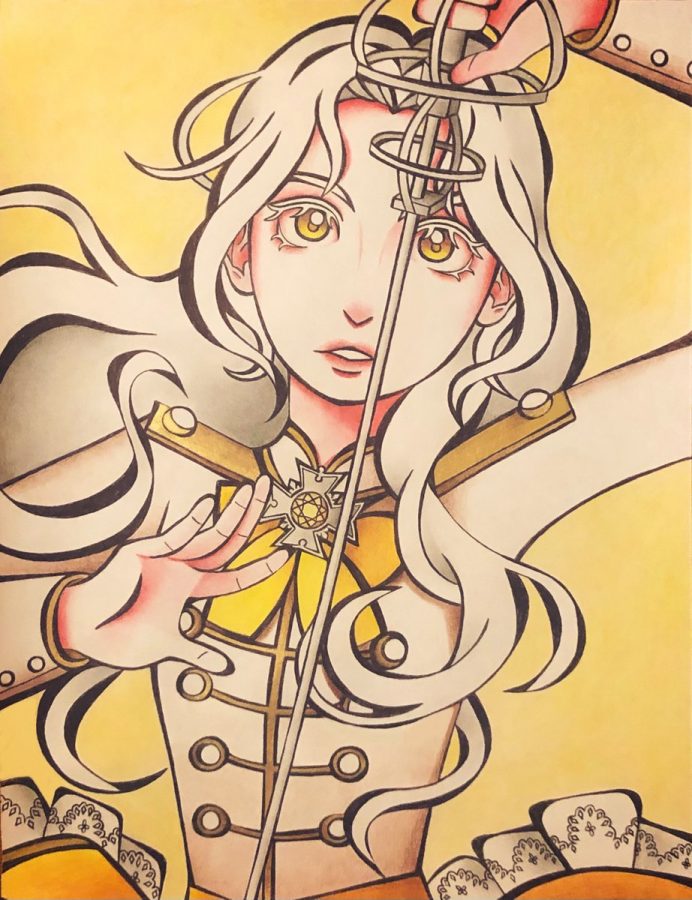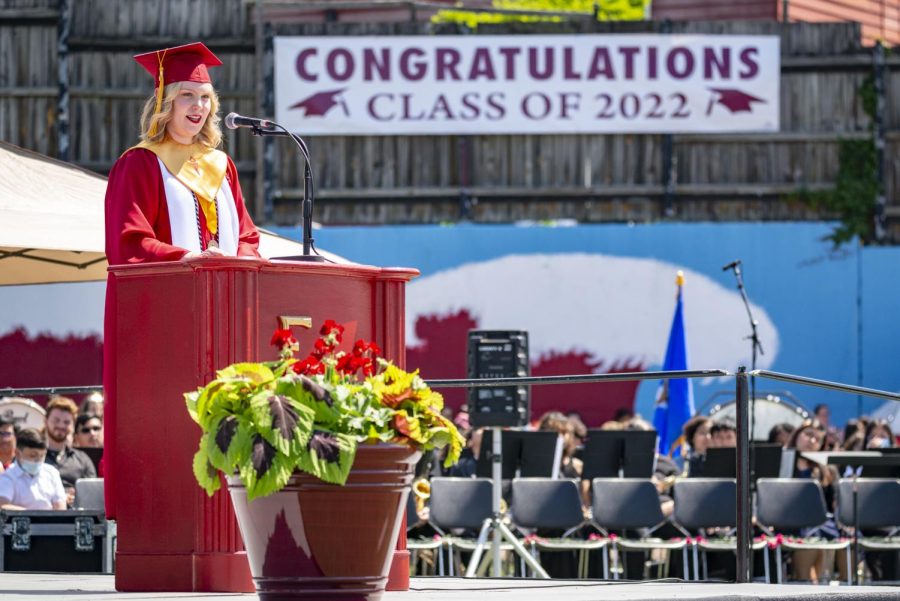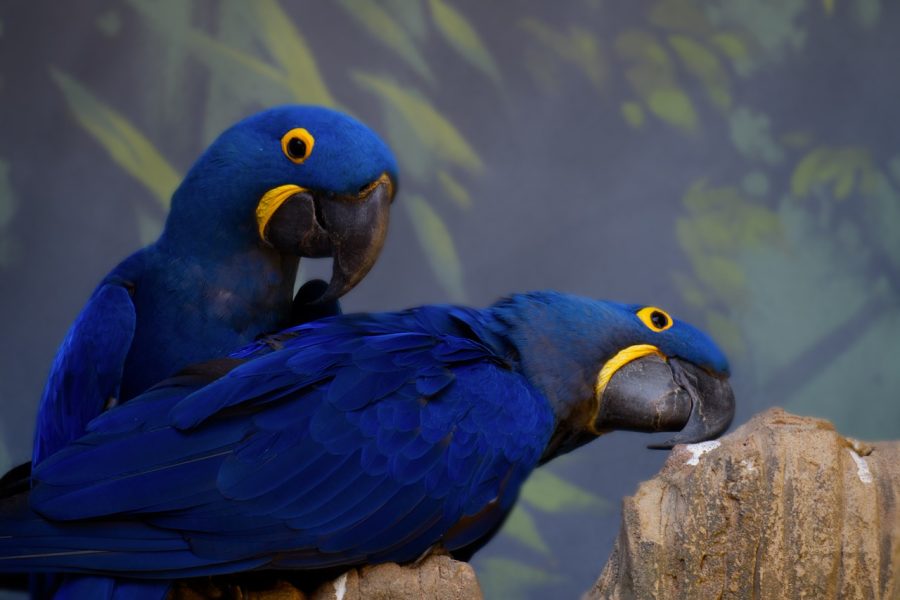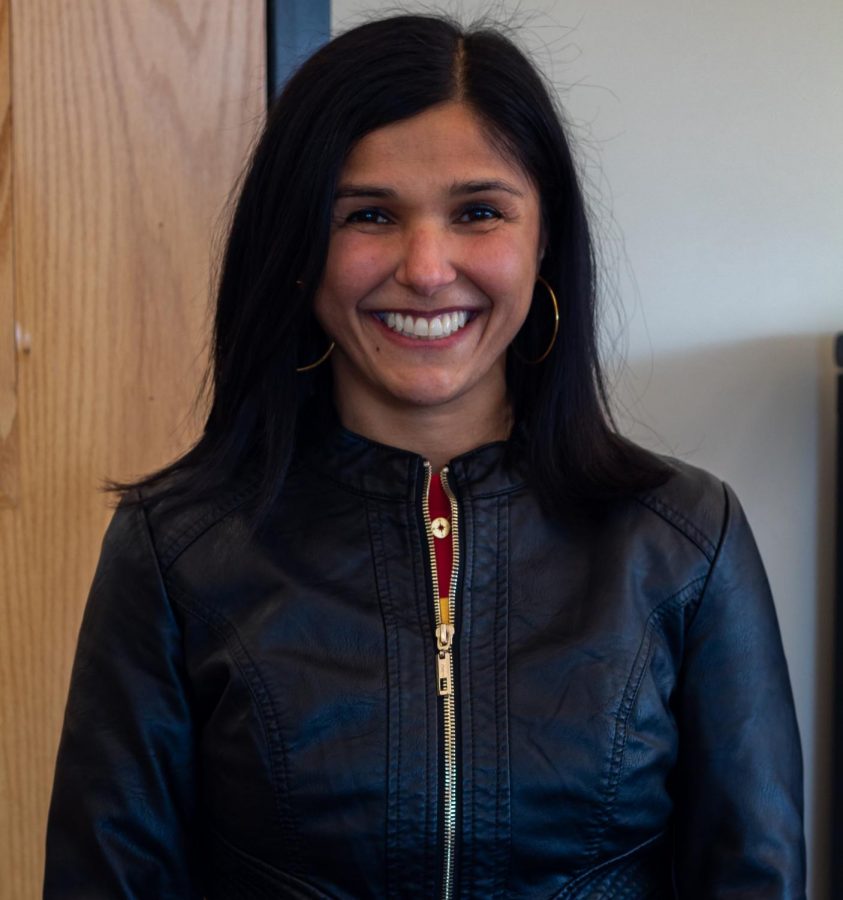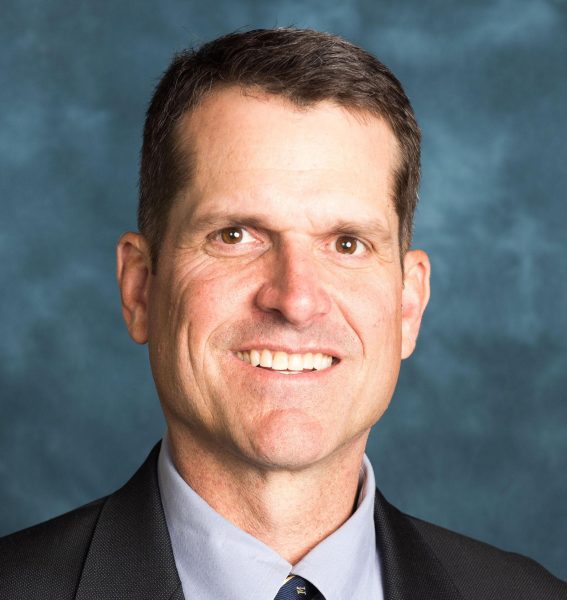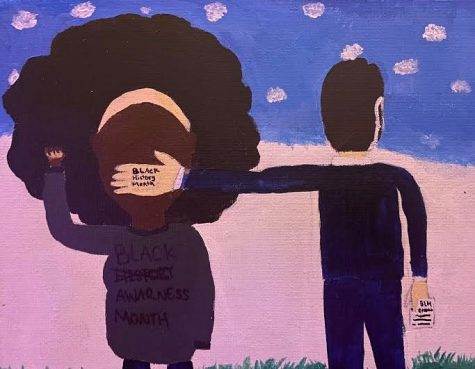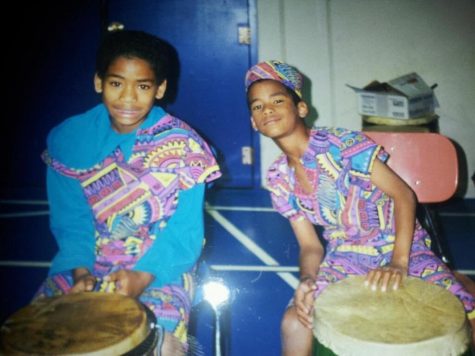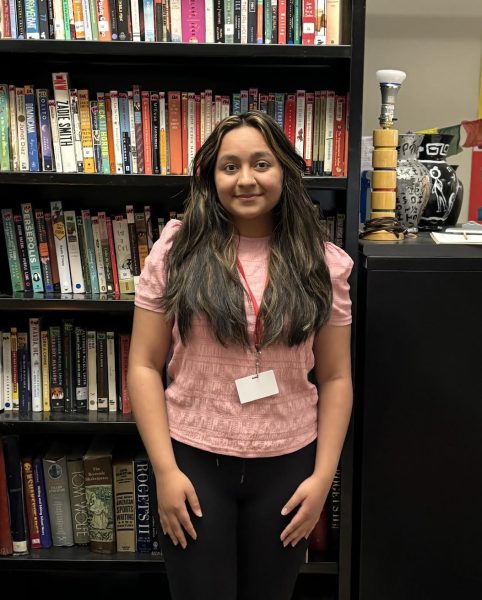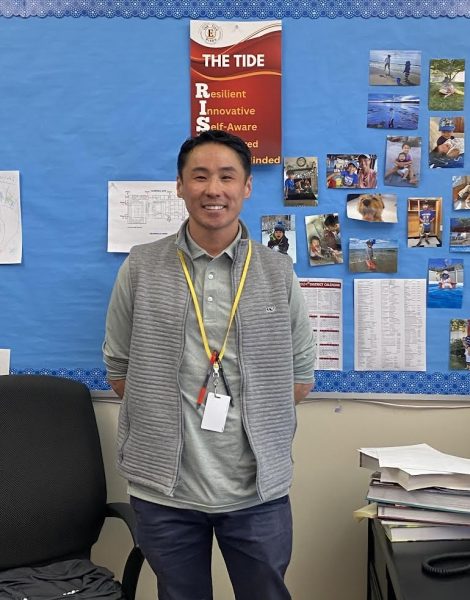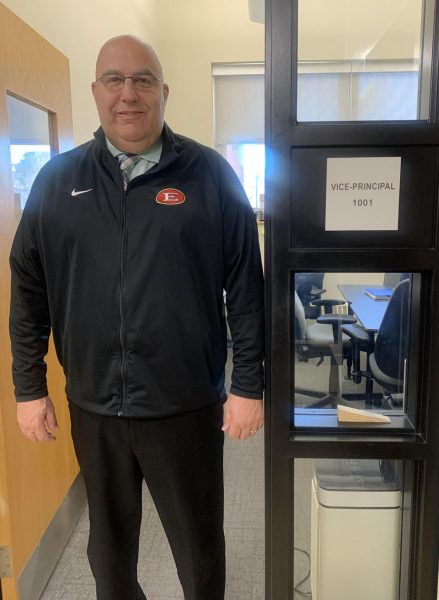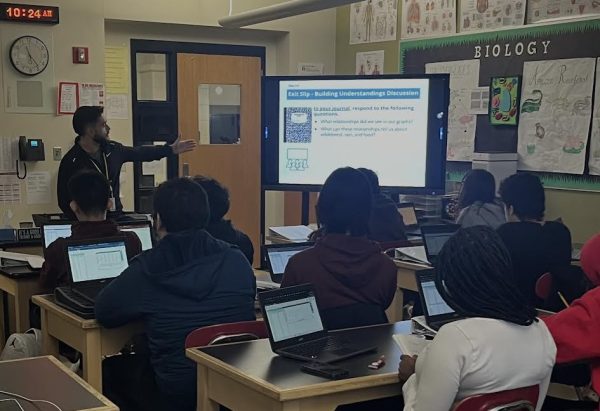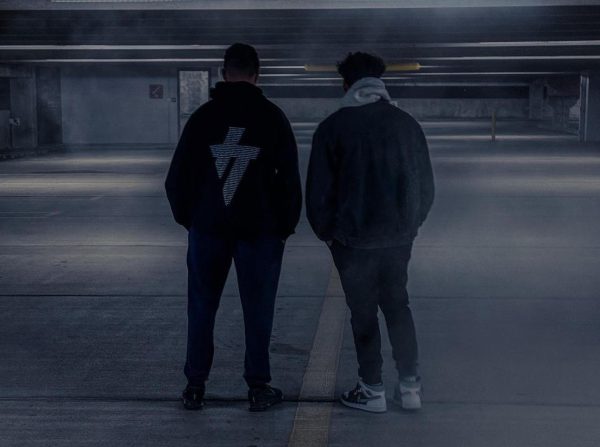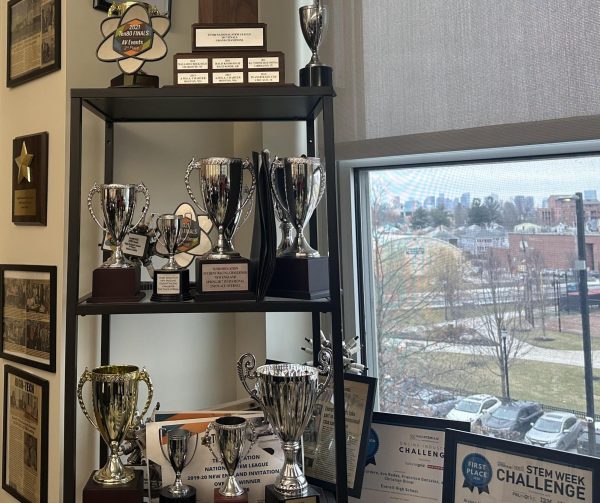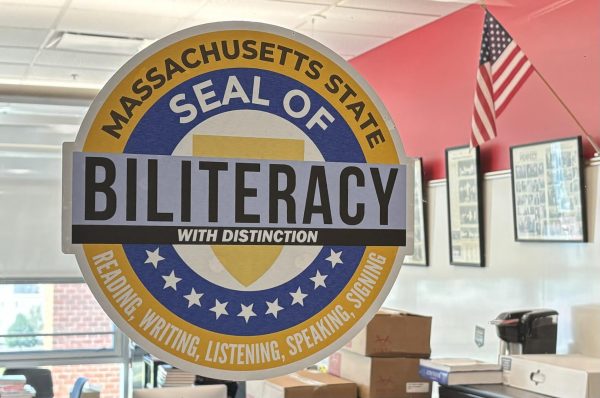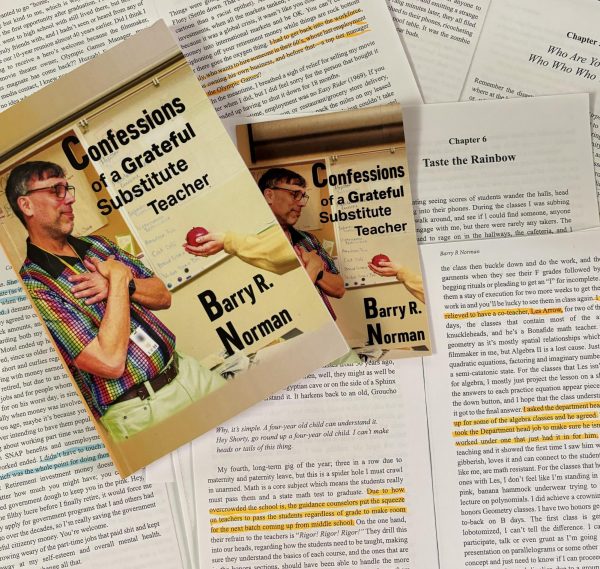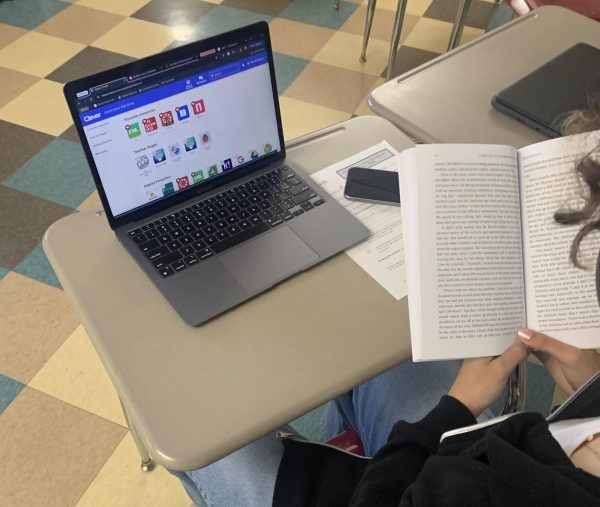Meet Priya
Crimson Times reporters sit down for in-depth interview with new superintendent during her first week on the job, get answers to crucial questions including which house in Harry Potter she would she belong to
Originally published online October 3, 2020. Published in print June 2020. Interview from March 5, 2020.
JULIE: So, tell me about yourself.
TAHILIANI: My name is Priya Tahiliani. I am the daughter of Indian immigrants, so my parents are originally from what is now Pakistan. After the war, India broke off. Pakistan became Pakistan, India became India, and anybody who was Hindu who was in Pakistan had to move into India, and anyone who was Muslim who lived in India had to move into Pakistan. So there was a lot of religious turmoil. My parents, at that point, were considered refugees into India. So my parents are Indian. They then moved here when my eldest sister was two years old. I was actually born here. I have another sister who was also born here who is older than me. We grew up in Memphis, Tennessee. That’s where my parents moved. I was an English learner, and over fifty percent of our English learners are actually U.S.-born, so I was one of the U.S.-born English learners. My family spoke a different language at home and it wasn’t until I went to kindergarten that I started to learn English. In Memphis, especially at that time, they didn’t have any such thing as ESL (English as a second language) services, so they didn’t really know what to do with me. There weren’t a lot of students who didn’t speak English, and so I was one of the only ones in my classroom. So when it came to first grade, when I was still not speaking English well enough, they wanted to retain me, and my parents said, “No, no, no, no, don’t keep her back. We promise we’ll get her to speak English.” And I had two older sisters who were also in school in America so everybody could speak English at home, we just didn’t. So then at home they went all English. So then I went from at least knowing what was going on at home to not knowing what was being said at home and not knowing what was being said at school either. So there was a lot of time where I was sort of incommunicado with no real ability to engage, and I think that was a really formative experience for me, and what I found is that my teachers, who didn’t have the training or the resources in order to support me in learning English, they did what all great teachers do; they just figured it out. They worked with me extra, they took extra time, they were very creative, and they did everything that they could in order to help me succeed and learn English and be successful in school. Because I so much appreciated what they did for me and how they helped me be successful, I think that really changed how I viewed school. I loved my teachers, and I wanted to become a teacher myself because of that. So I went to school here. I went to BU, and so I moved up here. I did my student teaching in Boston Public Schools in Charlestown. Then I got hired right out of college and was in BPS ever since. I met my husband in BPS, I taught for fifteen years first, and then I moved into school administration for a short time and then district administration. I spent the last few years as the assistant superintendent overseeing the Office of English Learners in BPS. So that’s what I’ve been doing. Supporting our English learners and all students has always been my passion, so it was really exciting to be able to spend that time doing that work. Then I saw this opportunity and was very excited about it. The demographics of the students here are very similar to those in Boston, but a much smaller community feel. I feel like you guys are doing such amazing things with your paper, CTE programs, arts, and I feel like there’s so many exciting things happening here in Everett. I was very excited at the prospect of possibly coming here. I feel really honored to be here. It was a very strenuous process to go through. There were a lot of interviews. I think my favorite part of the interview process was the day that I got to come and tour all of the schools. I actually got to come into Everett High School and see some of the CTE programs, going around to a couple of the different classes. It’s always nice to be in schools and to actually get to see the students whose community you’re hoping you’ll get to be a member of. That’s the whole purpose of doing this, so it was nice to be able to get that connection and to be able to see this amazing school, where all of these students are so diverse, not only in culture, but also in interests. You have a culinary arts program, amazing athletics, a school paper, a theatre program. That’s really amazing to have access to so many amazing and exciting opportunities. So it was a really great process, and I’m so excited about how it turned out, and that I’m here this week.
JULIE: And we’re so honored to have you.
TAHILIANI: Thank you!
EMMA: So you mentioned the demographics of Everett and how you’re an English learner, too. One of the things in Everett we’ve noticed in the past is that the school administration was really not representative of the demographics of the schools. What do you think it will mean, especially to young girls, girls of color, and young English learners to see someone like you in a pretty high position of authority?
TAHILIANI: I think that’s one of the things that’s most exciting to me, the message that that alone sends to our students about what they can achieve regardless of who they are, whether they’re an English learner or a native English speaker, a boy or girl, from whatever race or culture or linguistic background. I think the fact that they’re able to see different kinds of people in different leadership roles is a really exciting thing. I think all of us, even myself, doubt what you think you can do and what you think people will even consider you’re able to do. I think that’s a great message for all of us to know that there aren’t any limits to what we can do. There are definitely obstacles, but they are definitely ones that we can overcome. It sends the message that yes, there will be obstacles, but they have been overcome before and you can overcome them again.
JULIE: You mentioned strengthening the English learning program. How do you go about doing that?
TAHILIANI: I think this goes back to what you said about seeing someone in a leadership position who is reflective of the demographics. I think we need to sort of shift the mindset and the paradigm for all of our students to an asset-based mindset. Even the term English learners is something that is starting to be shifted away from. We all are learning English, we’re all taking ELA classes in high school. The term sets students apart in a way that makes it seem like they have a deficit, but when you really think about it, these are students who are bilingual. That is a huge asset. That is going to be something that is very important to them. In this global economy, the ultimate twenty-first century skill is to be able to communicate with a whole other group of people in a different language, so we should all be striving to be bilingual. So now the new term in the state is emerging bilinguals versus English learners. Obviously we haven’t fully moved over from one terminology to another, but I think it’s really important not just with the English learner population but in anything that we’re doing to look at the students’ assets and not their deficits. We should always be thinking about the strengths that students have that we can build on. When you’re looking at an English learner for example, they have already shown that they are able to learn a language. They know a language already. They are just learning another language now. They are becoming multilingual. We’re thinking about the skills that our students already have and that we’re just using those as a foundation to build more skills. We should never be looking at what they’re lacking, because we are all lacking many things. What we need to be thinking about is all of the things that we actually have and that we bring to the table, the things that we can enhance, and then the things we can actually teach to others, because there are things that I may lack that somebody else has that they can support me with, and the other way around.
EMMA: What kind of values do you live by?
TAHILIANI: I definitely think that it’s very important to be honest. My integrity is very important to me. Being honest and being ethical is what, not only we should be doing ourselves, but is what we should be modeling for our students, because eventually what we want is good citizens. We want good contributing members of society, because this is the society that we are all benefitting from; we are all living together and we’re all supposed to be supporting one another. So how are we teaching one another to be good, honest citizens? That is very important to me. Inclusivity is very important to me. The fact that we’re all including one another and, again, looking at each other for the assets that we bring and the strengths that we bring, and really thinking about how we can include everybody. That’s what I love about this school. I see that there are so many different students and a great deal of diversity. I see different students walking together, sitting together, talking together, and in different kinds of programs. I think that it’s really important for us to be able to be diverse and inclusive at the same time, so that is something that is also very important to me. Then also just being empathetic is a value that I hold very strong. I always say to my own kids that if I’m going to get a report from school, I would rather hear that they got a bad grade than that they were not nice to somebody. A bad grade, we can work on that and we can tutor each other, but if you weren’t nice to somebody, you’ve actually affected somebody else. Your own grade only affects you, and that’s something you can work towards improving, but I always want to make sure that we are being kind to one another. We all know what it feels like when somebody is unkind to us, and it can completely change your entire day. Whether you think it can or not, it’s something you think about all day, and it ends up affecting your academics and your mood. So we want to make sure that we are always being as kind and cognisant as possible, and that we are also learning what the best way to communicate with somebody is, so that they’re hearing us for what we’re saying and what we actually mean, versus sometimes when we miscommunicate unintentionally.
CAROLINE: Considering the other superintendent was here for so long, coming into this new position, were there any fears or anxieties that you had?
TAHILIANI: Oh, yeah. There’s a lot of fear and anxiety. This has been my first week here, and it’s been really exciting because it’s been Read Across America Week, so I’ve been getting to go into a lot of classrooms, and one of the things that I’ve asked the students in every classroom that I’ve gone into is, “How many of you have been nervous?” The day before your first day of school, you can’t even sleep. That’s how I have felt all week long. I feel like the new kid at school, the new kid on the block. Today I was in a fifth grade class at the Keverian, and they were reading Harry Potter, and I actually wore my Harry Potter t-shirt today because I love Harry Potter.
CAROLINE: I think the real question here is what house do you belong to?
TAHILIANI: Oh, Ravenclaw. I took the online test and I am definitely a Ravenclaw. And in that class the chapter we were on was the sorting hat, the one where Harry’s really nervous to come into school, and so I was talking to them about, “What is Harry feeling right now?” So, yeah, there’s tons of nerves. It’s not even necessarily because the past superintendent was here for so many years. I’d be nervous no matter what. But yes, the fact that there was a superintendent here for thirty years before me definitely makes me nervous. But there are so many things that make me nervous and anxious. At the end of the day, I take this job very seriously. It’s very important to me, and I know that the success of students and educators and families is on my shoulders. I feel very responsible for that, and I think that anybody in my position should be nervous, because that is a huge responsibility, one that shouldn’t ever be taken lightly.
CAROLINE: At recent basketball games, I saw you and your family there. Have you gone to any other games?
TAHILIANI: Yes. I was at Senior Hockey Night as well, and I also have a deputy superintendent joining me as well. Her name is Kim Tsai, and she went to the basketball game, and she was unfortunately at the playoffs where they lost. She got very into the game. She was texting me during it and telling me the score because I wasn’t able to go. That was her second basketball game, too. I definitely love sports. I spend most of my weekend and weeknights when I’m not at work at my kids’ own sporting events. My son plays basketball and hockey as well, and so I really enjoy that kind of culture. Getting to just be a part of something is always exciting, and seeing students outside of the school day is always nice, because it’s a little less formal, a little less stressful, and you get to see students just being relaxed and having a good time, which is part of the experience as well. I definitely intend to go to many, many games.
CAROLINE: So, as you can tell, sports is a huge part of Everett culture. Do you think you would plan to add more variety of sports, or do you think we’d want to build and fund sports that we have now?
TAHILIANI: That’s a great question. I’d really like to hear more from the educators currently here and the students about what they think is needed. I’ve definitely heard that the current sports may need extra access to funds for uniforms or things like that. I have not yet heard that they want to add more sports teams, whether they’re competitive or recreational, but I definitely would like to hear if that’s something that folks want.
CAROLINE: A couple years ago, I was part of the field hockey team, and a lot of the girls wanted to start a girls lacrosse team. We have a boys lacrosse team, but not a girls lacrosse. We almost got it passed, but it was the funding that was the problem. The school committee just didn’t accept it. I just wanted to add that.
TAHILIANI: So I am in favor of anything that is going to support students being engaged. I think that teamwork and collaboration is very important, and that is definitely a skill that you learn in sports that you then bring into your daily life and your work. I’ve also heard that there are students who want an expansion of arts. I’ve heard several different kinds of messaging. I am a huge believe in enrichment opportunities, because I think that’s what makes students really excited to come to school. I wish I could say that it’s math or science, but it’s applying those skills outside of the classroom that I think really gets students excited for school. That’s why I think CTE programs are so important. Using those real life skills, your math skills, your ELA skills, and realizing how it actually does help you in real life is important. So I’m very much a big believer in that, so I would want to explore any of the opportunities that students are hoping for and see how we can support them.
JULIE: Speaking of programs, how do you feel about the music program and being able to add money to that, because we’re all in the music program.
CAROLINE: We actually went to Washington D.C. last year.
TAHILIANI: Yes, I heard about that! I think, again, that those are the kinds of things that get students excited. Those are the memories that you take with you after school. And I’ve actually heard about that experience from three different adults already. I think those are the things that really make us a community where we get to actually experience something amazing together. So I would definitely look at how we could provide support with the funds to be able to do that. One thing that I’ve definitely learned where I come from is that there are always ways to be creative with funding to be able to support what it is you really need. There are always ways to move things around to support the really important experiences that we want to support for our students.
CAROLINE: Talking about funding, a lot of kids want to start fundraisers this year, but it was pushed down for safety concerns. They were things like Pie in the Face Day or Tape a Teacher to the Wall day, but they were pushed down.
TAHILIANI: I actually did a dunk tank with my students once, and it was a pretty cold day, too! But they really enjoyed it and we did earn a lot of money. That’s actually really interesting, because I’ve even seen some of the fundraisers that are starting to be requested. It actually wasn’t by students; they were ones that were being requested by staff. And I will say I am definitely a proponent of making sure that, as we encourage all of these amazing opportunities and experiences, that we’re also having protocols. Anything that has to do with money or safety is definitely something you want to consider. Even when you’re in a non-profit organization, there are requirements you have in order to do fundraising and there are some restrictions on how you can fundraise and when you can fundraise so that you’re not putting people in compromising positions. Those are things we want to make sure we’re doing, not only as students, but as educators as well. That’s something I’m looking over right now: our protocols and procedures for fundraising.
CAROLINE: One of the things that seems to be lacking is communication between students and staff, which brings me to my next question. Would you be willing to have monthly meetings with the student council, or just in forming tighter bonds with the students?
TAHILIANI: Yes, absolutely! I’m seeing about scheduling time to talk with either the student council or a student advisory board, and if there isn’t already a student advisory board then getting to work on forming one that would meet with the superintendent. That’s something that we had where I’m coming from. They were students that represented diverse interests, and they would come together at least once a month to talk about the issues that are really important to them, and then they put forward recommendations and advisory to the superintendent. I think that would definitely be something that I’m interested in.
EMMA: So, I saw some stuff about you being a writer, and I think I also saw some stuff about you being a playwright. Could you tell us a little bit about that?
TAHILIANI: Yes. So I got my masters degree in creative writing and literature, so I did teach ESL, but I also mostly taught ELA. I also taught, at the high school level, an elective of creative writing, actually playwriting for several years as well. I loved teaching that class. That was really fun for me. So I did my masters degree at Harvard in creative writing and literature with a focus on playwriting. I wrote several short plays. There are actually some that are online, because as part of my final thesis, I had to create a website that had my writing resume. I probably haven’t upgraded it since I graduated, but if you go on there it has some of the productions of my plays on it. I was actually in a few festivals, I won a couple of awards at those festivals, and it’s always something I’ve loved to do. I love to write, especially fiction. It’s kind of funny that when I was applying for this position, there was actually an article in one of your Everett papers about me being a creative writer, and I can’t remember exactly what it said. I don’t know if it was positive or negative,but I thought what was important about it is that all of us should have a diversity of interests. Just because I’m a superintendent or just because I’m an educator doesn’t mean that’s all I am or all I do, and I think it’s important for us to teach our students that these things that they’re doing in highschool, maybe that’s not going to be their profession one day, but they shouldn’t give up on these things that make them happy and make them excited. It’s good to sometimes be creative or go outside of what you’re doing on a day to day basis, because it keeps your mind nimble, and it keeps you engaged and excited. I think it’s important for all of us to have lots of interests and for us, even as we get older to continue to explore new things and to get new interests. I would encourage every student to do that, not only in their current lives, but to keep that up as they get older, because as you get older the stressors only get greater. It’s good to have something that keeps you grounded and relaxes you and makes you focus in a different way. I think it makes you a much more well-rounded person.
JULIE: Do you have a favorite creative writing piece?
TAHILIANI: That I did?
JULIE: Yeah, that would be cool.
TAHILIANI: I think my favorite is a short play that I wrote called “A Crooked Chapati.” A lot of them, though completely fictional, are based on characters that are first generation Indian-Americans, because that’s the experience that I know.
JULIE: You spoke about being from an immigrant family. A majority of this school are immigrants or have immigrant parents, and we’ve all struggled and gone through many challenges and adversity. What do you think about that, especially in Everett?
TAHILIANI: I think especially now, it’s an even more challenging time. I say that, but when you look back in history, it’s always been challenging. It’s just about how prevalent it is in the headline or how prevalent it is in social media, which we didn’t have back then. A lot of the challenges that our immigrant families and children of immigrants are very similar to the ones they were facing before, there just wasn’t as much of a spotlight shed on it. I think that what that means to me here in Everett and what that also meant to me in Boston was that we need to make an extra effort to make sure that our schools are safe and welcoming places for our students and their families and that we really need to be thinking about how we can engage families in a way that’s really meaningful and really going out into the community instead of just expecting our parents to come to us here in the schools. I think that a lot of our immigrant families want to be involved and engaged, but there is, not only a fear factor, but also a cultural difference as well. I know, for example, my own parents, that in India there’s no expectation of participation from parents in their children’s education. My parents’ views were always the school is the authority, we never question the teachers, they know best. We’re never going to say what we think our students should be experiencing. They are the experts and we rely on them. But in America, there’s a different culture where you do advocate for yourself. Self advocacy is very important. It’s important for families to advocate for their students and to be able to support them in their education. We want to be able to support our families, not only in being safe to come to school, but in helping them to know how they can be engaged in the school community, because here in America, being part of a school community is a part of the actual experience. The more families we can get into the school, the better.
CAROLINE: Since you have so many challenges as far as being a mom and working in Boston already, what made you want to take on this challenge of being superintendent of Everett?
TAHILIANI: I love being an educator, and I loved my previous role. I was a teacher for fifteen years and what was really exciting about my last role is that I was able to use the fifteen years of classroom experience I had teaching students to inform how I was making decisions at a district level. I was able to think about the policies we were putting in place and how we were thinking about programming and resources for our students. I think it’s really important to have that perspective when you are overseeing students in a district. That was very empowering for me to be able to get to see how I could support my students, not just in a classroom, but now, in a larger way, to be able to create policies that then supported them and the school, whether it’s funding resources in a way that they wanted or that I think is going to be beneficial for them, creating instructional programs that I think are going to benefit them, or creating parent engagement opportunities that I know are going to get their parents involved, because I know what it was like as a teacher to really authentically engage families. I was ready to take that to another level, to be able to do that for an entire district. That opportunity was really exciting for me. I had a lot of encouragement from my family. I do have small children, but I have an extremely supportive husband who believes very strongly in my abilities. He was my biggest cheerleader and told me that I could have an even greater impact in this position, for this group of students, so I’m really excited to do that.
CAROLINE: I read that you went to Harvard and BU, so I can tell that education is a huge part of your life. I bet that many kids here think of you as a role model, knowing who you are and what you’ve gone through. Even though Everett is a very diverse community, racism still exists. Is there anything you want to say or any advice that you would give to all the girls that had the same dreams that you did, but are shut down because of their color or their ethnicity or sexual orientation and such?
TAHILIANI: Honestly, I think the fact that I’m in this position at all shows that while that is a reality in Everett, as well as everywhere, that there is a change in mindset and that people are ready for a change. Change doesn’t come easy, and I’ve definitely dealt with my number of obstacles. I’ve definitely pursued opportunities that I wasn’t considered for, and I don’t know if it was because of my race or my gender. You definitely hit roadblocks, but everybody does. I think what’s important is knowing that you can overcome them, and being able to stay strong and stay true to yourself. Just know that you have to just be the best person you can possibly be. When you are the victim of something like racism, you need to take care of yourself. You need to be able to do whatever you need to do to make sure that you’re practicing self care. That’s the only way for you to then be able to care for others and then be able to not retaliate or let that kind of feeling manifest and be reproduced in yourself, and then to be able to be empathetic towards others. Being able to take a negative experience and turn it into a positive experience for somebody else is an incredibly difficult thing to do, but it’s something we have to do, because it’s something we’re constantly dealing with. We just have to be able to take that in and learn how to process it in a way that we’re taking care of ourselves, but then we’re able to put out a different experience for somebody else. We’re able to take something that we experience and say that that’s not something we would want anybody else to experience. I need to make sure that I show the behavior that I want others to show me. It’s kind of like Ghandi’s quote, “You have to be the change that you want to see in the world.” That’s a much easier thing said than done. It really does take being able to find people that support you and love you, and to take care of yourself and have them take care of you and remind you of all of the good in the world and all of the good in you, so that you can then put something different out there in the world.
EMMA: That’s amazing. On a different topic, what’s something that you would want the students or Everett to know about you personally?
TAHILIANI: I want them to know that I never dreamed that I would be in this role. I want students to know that the doubts that they feel in themselves are felt by adults, too. I feel them, too. I’m overwhelmed, overjoyed, and completely humbled to be in this role. Not only did I doubt myself in pursuing it, but I am nervous, I am terrified, and I want to do the best that I can possibly do. Oftentimes, we don’t show that vulnerability to our students. As adults we try to make it look like we have it all together or we have it all figured out, and that’s not true. That’s not reality, and I want to make sure that students know that we’re all feeling it. That’s what drives us forward and what drives us to be better and stronger. It’s not because anybody in this world has it all figured out or anybody is completely confident that they’re always going to do the right thing or say the right thing or show amazing outcomes all the time. I don’t think that’s the case at all. I think we’re all always nervous and wanting to do the best that we can possibly do. I want students to know that what they’re feeling is completely natural and that they have to just persist in the face of that. Again, you have to have a support system. You have to have family and friends and loved ones that support you and build you up, and you have to build them up, so you can make sure that you’re able to face that fear every day and keep moving forward so that you can do the great work that you were put on this Earth to do.
JULIE: As the new superintendent, do you have any programs in mind? What’s the first thing you want to do?
TAHILIANI: I’ve actually been really impressed with a lot of the programming that I’ve already seen, and so I really want to be talking to students and educators about how to enhance what’s already there. There are very few districts where you find all of these different opportunities where students are learning violin in kindergarten. That’s a really great thing that you all do here. So I think my first charge as superintendent is to make sure that I understand everything that’s already being done and understand what it is that the students and educators want to see more of,and to be able to support that. So how can we build a budget and build a system around what’s already amazing in Everett that needs to be enhanced and lifted up, and then what are the areas that we could be doing better, and how could we do that as well?
EMMA: So when they were searching for a new superintendent, one of the big questions was whether or not we wanted somebody who was already from Everett. How do you think coming from an outside perspective can help you in Everett?
TAHILIANI: I think you have to have people who have been in Everett and from Everett and have that institutional historical knowledge in order to be able to support moving forward and growing, but then I think you also have to have the other side of that. You have to have people who are coming from other places that have different perspectives and have had different experiences. There are already things that I’ve seen that you guys are doing here that I need to tell them about in Boston. They just don’t know, because they’ve never done it that way. Sometimes it’s just you know what you know. So I think you need to have both sides of that. I think we all grow and learn from having that diverse set of perspectives. So I think being able to come in with a fresh set of eyes is going to be beneficial, but I also don’t want to discount the fact that you need a lot of people in Everett, too, who know what’s being done, what has been done, what has been done and didn’t work so that you’re not just duplicating old errors so you can progress. We don’t want to regress or stagnate, we want to move forward. I think you need a combination of people both in and outside of Everett to do that.
CAROLINE: When you heard the news that you were superintendent, what was the first thing that you or your family did together to celebrate?
TAHILIANI: I was actually so nervous [about waiting for the news] that my husband wanted to get my mind off of it, because I didn’t know what was going on. I was very nervous, and I don’t think I’ve ever been quite so nervous. Actually, when I got the news, we were at a car dealership, because our car was basically on its last legs. It was done; we could not safely drive our children around in that car anymore, and so we bought a new car. We were going to pick it up, and we had to fill out paperwork, my husband said, “Let’s just go and do this. It will take your mind off of it.” It did not work. It did not take my mind off of it. All I was doing was looking at my phone and waiting. I wasn’t listening, and I wasn’t filling out paperwork properly. So when I got the news I was totally taken aback, and I was in a completely wrong place to do any celebration. So basically what happened was a lot of phone calls. People had been following and waiting for the news. I don’t know how some people found out before I even found out, but they did, and so I was getting lots of phone calls. Then obviously I was calling my own family, texting them. So it was really just a flurry of phone calls. After that, it was close to the winter vacation, so then that was really the time that I got to actually take a breath and celebrate with family. We do celebrate Christmas. I’m Hindu and my husband is Catholic, so we celebrate all the different holidays. It was nice, over Christmas, to be able to just be with my family. So that’s when we really got to celebrate, and that’s when the news had really sunk in, because I think even that night and for many days afterwards, I still didn’t quite believe it.
EMMA: So you talked about your family, your husband and your kids. Just so we can get to know you a little better, who would you say are the most important people in your life?
TAHILIANI: Definitely my husband, my kids, my parents. It was funny, my mom just called me driving on the way over here just to say “Hi, how was your day? How was your first week?” I’ve already talked to my dad twice; I don’t think I’ve ever talked to them this much in one week before. But yeah, definitely my husband, who has been incredibly supportive. I do have two small kids. He does all the cleaning, all the cooking. He’s like Superman. So he has really supported me; he’s very important to me, and both of my kids are, too. Then my parents as well.
CAROLINE: I have some questions, but they’re not serious questions. It’s going to be a bit of a speed round, like a little this-or-that kind of thing, just to get to know you better. First off, chocolate or vanilla?
TAHILIANI: Chocolate.
CAROLINE: Dogs or cats?
TAHILIANI: Dogs.
CAROLINE: Zoos or Aquariums?
TAHILIANI: Aquariums.
CAROLINE: What is the best dramatic movie you’ve ever seen?
TAHILIANI: Shawshank Redemption.
CAROLINE: What is your most used word?
TAHILIANI: My husband says it’s “whatever,” but I’m not proud of that.
CAROLINE: Have you ever been in a position of authority besides right now?
TAHILIANI: Yes, I’m a mom.
CAROLINE: Are you more of a texter or a caller?
TAHILIANI: Texter.
CAROLINE: Favorite type of pie?
TAHILIANI: Apple.
CAROLINE: Favorite juice?
TAHILIANI: Mango.
CAROLINE: Are you more of a sneakers, sandals, or heels type of person?
TAHILIANI: Heels.
CAROLINE: Favorite holiday?
TAHILIANI: Christmas.
CAROLINE: What is your favorite topping on pizza?
TAHILIANI: Pepperoni.
CAROLINE: Favorite sport?
TAHILIANI: Hockey, ice hockey.
CAROLINE: To watch or to play?
TAHILIANI: To watch. I can’t play any sports.
CAROLINE: Favorite cookie?
TAHILIANI: Chocolate chip.
CAROLINE: What is your favorite TV show to binge on?
TAHILIANI: The Office. I love The Office. In fact, there’s a quote that one of your questions before reminded me of where somebody says to one of the characters, “Wait, you’re calling somebody who texted you? Are you trying to drive them away?”
CAROLINE: Favorite time of the day: morning, afternoon, or evening?
TAHILIANI: Evening.
CAROLINE: Who is your favorite superhero?
TAHILIANI: She-Ra.
CAROLINE: Who’s She-Ra?
TAHILIANI: Do you remember She-Ra? I don’t know if that’s your generation. So, when I was a kid, there was He-Man and She-Ra, and I used to watch She-Ra.
CAROLINE: Do you have any pets?
TAHILIANI: So, I did have two dogs. Unfortunately, they have both passed. I had a shepherd-doberman, so a big dog, and I had a pug-chihuahua, but they are both no longer with us.
CAROLINE: What is your zodiac sign?
TAHILIANI: Libra.
CAROLINE: What’s your lucky number?
TAHILIANI: Eight.
CAROLINE: Have you ever met any celebrities?
TAHILIANI: No, I actually don’t think I have. Oh, I saw Tom Brady at ice hockey practice.
CAROLINE: That’s so crazy!
TAHILIANI: I mean, I didn’t talk to him, but he was there, very big and very tall. And Gisele, his wife was there, too. My son plays ice hockey in Brookline, and their son also did, but he was a year younger, so our practices would sometimes be either before them or after them, so that was pretty crazy.
CAROLINE: Who is your celebrity crush?
TAHILIANI: Oh, Ryan Reynolds. And Jason Bateman.
CAROLINE: Baths or showers?
TAHILIANI: Showers.
CAROLINE: Do you have a favorite child?
TAHILIANI: Of my own kids? No! They’re all my favorites. But my kids are totally different. They have different interests so we get to do different things together, but no, of course I don’t have a favorite.
CAROLINE: Okay, only a couple more left. What’s the funniest moment you remember from high school? Or college?
TAHILIANI: So, I don’t know if it’s funny. I was doing really poorly in math class. It was second semester, senior year, and I’m embarrassed to say, since I had already gotten into college, and I had never not done homework in my entire life, that I started to sort of not do what I was supposed to do. And then I maybe wasn’t truthful with my mom about how I was doing in school. They trusted me at that point, they didn’t really look at my report cards anymore, and I’d already gotten into college, so I didn’t really tell her how badly I was doing in my classes. It turned out that she’d found out from my teacher, and my teacher said that I wasn’t behaving well in class either. So in the middle of class, and I wasn’t necessarily behaving in that class, my mom, who was always in full Indian clothes, walks into the classroom, walks into the back of the class, and sits down in a seat. And every single student in the class is watching her walk, sees her sit down, and everybody looks right at me, because I’m obviously the only Indian kid in the class and this is clearly my mother. So she sat in that class and watched me the entire class. It was highly mortifying. And then when everybody else left, I obviously had to sit down and meet with both my teacher and my mom, who is furious. What I thought was so amazing—and it’s funny now, but it was awful then—was that my mom, when I left for school that morning, she acted totally normal and didn’t let me know that she was going to be coming into school in three hours and sitting in my classroom. And she didn’t even act mad; she acted totally cool, but she was so furious with me. So if my kids ever do really badly in school, I’m going to wear all of my Indian clothes, I’m going to walk into their class, I’m going to sit in the back, and I’m going to watch them. Then, in one weekend, I had to do all of the work that I had missed the entire semester.
CAROLINE: That’s crazy. So, what was your favorite school subject?
TAHILIANI: ELA.
CAROLINE: What was your least favorite school subject?
TAHILIANI: Oh, I was terrible at history. I like watching it on History Channel, but I wasn’t good at reading it. And my husband is a history major, so he loves it. So now I have an appreciation for it, but I just didn’t get it in school. I wish I had paid more attention, now that I actually realize how interesting it is.
CAROLINE: Okay, so the last question is if you could describe Everett in one word or phrase, how would you describe it?
TAHILIANI: Community. I think that’s what I’ve experienced the most is that there is definitely a sense of community here. And nothing is perfect, you know? Families fight, families have their own issues, but it does feel like a big family. There’s a great feeling of investment in the schools and in the city from everyone here, and there’s a great sense of pride.
JULIE: I guess that’s all we have.
EMMA: It was so great meeting you.
CAROLINE: Thank you so much.
TAHILIANI: This was wonderful. Thank you guys so much.
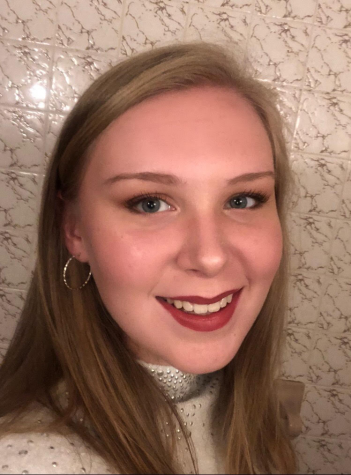
Emma Santos is a senior at Everett High School. She was born in Boston and has lived in Everett for her entire life, but when she is older she wants...

